Articles Everyone Should Know
These are some of the most relevant research articles about Shaken Baby Syndrome/Abusive Head Trauma that will aid a lay person wanting to learn more about this form of child abuse.
Recent Research
The list below contains the most recent research relevant to SBS/AHT published during the past few years. The list cites the article’s title, author(s), title of the periodical or book, publication date and a link to the abstract or full article (if available).
The neurobiological effects of childhood maltreatment on brain structure, function, and attachment. Tomado A., Nishitani, S.,Takiguchi, S. et al. European Archives of Psychiatry and Clinical Neuroscience. March 2024.
Optical Coherence Tomography And Visual Outcomes In Pediatric Abusive Head Trauma. Kelly, J.P., Feldman, K., & Weiss, A. Retinal Cases & Brief Reports. March 2024.
Pilot study using machine learning to improve estimation of physical abuse prevalence. Brink, F.W., Lo, C.B., Rust, S.W., et al. Child Abuse & Neglect. March 2024.
Characteristics of child abuse fatalities: Insights from a statewide violent death reporting system. Dean, J.R., Kaczor, K., Lorenz, D., et al. Child Abuse & Neglect. March 2024.
Abusive head trauma: The body of the iceberg – A population-based survey on prevalence and perpetrators. Berthold, O., Fegert, J.M., Brahler, E., et al. Child Abuse & Neglect. March 2024.
How Antiscience Creates Confusion About the Diagnosis of Abusive Head Trauma (Letter & Reply). Brook, C., Rossant, C., & Findley, K. JAMA Pediatrics. March 2024.
Knowing Your Patient Population: Techniques to Capture Infants at High Risk for Physical Abuse in a Trauma Registry. Papillon, S., Master, S., Klein, M., et al. Journal of Pediatric Surgery. February 2024.
The role of fellowship experience in decreasing burnout for child abuse pediatricians. Svendsen, S.S., Lewis, T., Chiesa, A.E., et al. Child Abuse & Neglect. January 2024.
Assessing Awareness, Knowledge, and Attitude of Saudi Mothers Regarding Shaken Baby Syndrome in the Eastern Province of Saudi Arabia: A CrossSectional Prospective Study. Alghanim, F.F., Almubayedh, T.A., & Alseba, Z. Cureus. January 2024.
Impact of a Parent Education Program Delivered by Nurses and Health Care Providers in Reducing Infant Physical Abuse Hospitalization Rates in British Columbia, Canada. Sadler, K., Rajabali, F., Zheng, A., et al. Canadian Journal of Nursing Research. January 2024.
Defining Sentinel Injuries of Suspected Child Abuse by Age Using International Classification of Diseases-10: A Delphi Study. Kim, H.B., & Hyun, N. Pediatric Emergency Care. December 2023.
Diagnosis of metaphyseal fractures in infants and young children with suspected inflicted injury: a systematic review of cross-sectional imaging techniques. Alshammari, A.T., Oates, A.J., Rigby, A.S., et al. Clinical Radiology. November 2023.
An update on pediatric traumatic brain injury. Figaji, A. Child's Nervous System. October 2023.
Has the relationship between community poverty and child maltreatment report rates become stronger or weaker over time? Hyunil, K., & Brett, D. Child Abuse & Neglect. September 2023.
The Effects of the COVID-19 Pandemic on Violent Injuries in Children: A Literature Review. Georgeades, C., & Flynn-O'Brien, K. Advances in Pediatrics. August 2023.
Impact of standardization on racial and socioeconomic disparities in non-accidental trauma evaluations in infants in a pediatric emergency department. Elliott, L.A., Gittelman, M.A., Kurowski, E.M., et al. Injury Epidemiology. July 2023.
Screening for Child Abuse in Children With Isolated Skull Fractures. Chen, S.Y., Gao, L., Imagawa, K.K., et al. Pediatric Emergency Care. June 2023.
Symptomatic Cervical Spinal Cord Injury Without Accompanying Intracranial Injury Because of Child Abuse. Feldman, K.W., Wright, J.N., Menashe, S.J., et al. Pediatric Emergency Care. June 2023.
Parental Knowledge and Awareness about Shaken Baby Syndrome in Jeddah, Saudi Arabia: A Cross-Sectional Study. Alzahrani, F., Al-Jabri, B.A., Ramadan. S.A., et al. Pediatric Reports. May 2023.
Comparisons of characteristics and outcome between abusive head trauma and non-abusive head trauma in a pediatric intensive care unit. Liu, Y.C., Chen, I.C., Yin. H.L., et al. Journal of the Formosan Medical Association. May 2023.
Identifying the Challenges of Child Abuse Detection Among Emergency, Pediatrics, and Family Medicine Practitioners in Saudi Arabia. AIShalhoub, N.M, Bin Shalhoub, A.A., Alshanawani, H.E., et al. Cureus. April 2023.
Characteristics of non-accidental injuries in children and adolescents in Asia: a cross-national, multicenter cohort study. Wang. P.Y., Tseng, W.C., Lee, M.C., et al. Scientific Reports. April 2023.
A bad time for kids in lockdown: The relationship between negative pandemic events, parenting stress, and maltreatment related parenting behaviors. Blumenthal, A. Child Abuse & Neglect. April 2023.
The monthly incidence of abusive head trauma, inflicted skeletal trauma, and unexplained skin lesion in children in six French university hospitals during the COVID-19 pandemic. Obry, S., Roman, E., Tavernier, E., et al. Child Abuse & Neglect. April 2023.
Controversial aspects of imaging in child abuse: a second roundtable discussion from the ESPR child abuse taskforce. Paddock, M., Choudhary, A.K., Jeanes, A., et al. Pediatric Radiology. March 2023.
Child physical abuse screening in a pediatric ED; Does TRAIN(ing) Help? Heyming, T., Knudsen-Robbins, C., Sharma, S., et al. BMC Pediatrics. March 2023.
Benign enlargement of the subarachnoid spaces and subdural collections—when to evaluate for abuse. Raissaki, M., Adamsbaum, C., Argyropoulou, M., et al. Pediatric Radiology. March 2023.
Correlations of intracranial pathology and cause of head injury with retinal hemorrhage in infants and toddlers: A multicenter, retrospective study by the J-HITs (Japanese Head injury of Infants and Toddlers study) group. Kato, M., Nonaka, M., Akutsu, N., et al. PLOS ONE. March 2023.
Cost of Pediatric Trauma: A Comparison of Non-Accidental and Accidental Trauma in Pediatric Patients. Peace, A.E., Caruso, D., Agala, C.B., et al. Journal of Surgical Research. March 2023.
Developmental Outcomes Following Abusive Head Trauma in Infancy: A Systematic Review. Sarmiento, C.A., Wyrwa, J.M., Chambliss, A.V., et al. Journal of Head Trauma Rehabilitation. February 2023.
The Effectiveness of Parenting Programs in Preventing Abusive Head Trauma: A Systematic Review and Meta-Analysis. Chang, H.Y., Chang, Y.C., Feng, J.Y., et al. Trauma, Violence, & Abuse. February 2023.
Why admitted cases of AHT make a low quality reference standard: A survey of people accused of AHT in France. Rossant, C., & Brook, C. Forensic Science International: Synergy. February 2023.
Characterization of subdural collections in initial neuroimaging of abusive head trauma: Implications for forensic age diagnostics and clinical decision-making. Hahnemann, M.L., Kronsbein, K., Karger, B., et al. European Journal of Radiology. February 2023.
Managing Severe Traumatic Brain Injury Across Resource Settings: Latin American Perspectives. Alvarado-Dyer, R., Chesnut, R.M., Videtta, W., et al. Neurocritical Care. January 2023.
Paid Family Leave: An Upstream Intervention to Prevent Family Violence. Bullinger, L.S., Klika, B., Feely, M., et al. Journal of Family Violence. January 2023.
Abusive Head Trauma in Child Maltreatment-Related Homicide Cases in the United States: An Analysis of the National Violent Death Reporting System Data- 2012–2017. Watson, A.E., Oliver, C., Wilson, R.F., et al. Journal of Family Violence. January 2023.
Changing diagnostic patterns in cases of sudden and unexpected natural death in infants and young children: 1994–2018. Byard, R.W., & Tan, L. Acta Pediatrica. January 2023.
Mild abusive head injury: diagnosis and pitfalls. Jenny. C. Child's Nervous System. January 2023.
Identifying abusive head trauma and its mimics: diagnostic nuances. Protzenko, T., & Salomão, J.F. Child's Nervous System. January 2023.
Accidental and Abusive Mandible Fractures in Infants and Toddlers. Koti, A.S., Vega, S., Johnson, K., et al. Pediatric Emergency Care. January 2023.
Increased severity of abusive head trauma during the first year of the COVID-19 pandemic. Cercone, D.J., Berger R.P., Manole, M.D., et al. Child Abuse & Neglect. January 2023.
Child abuse-related homicides precipitated by caregiver use of harsh physical punishment. Wilson, R.F., Afifi. T.O., Yuan, K., et al. Child Abuse & Neglect. January 2023.
The diagnosis and management of abusive head injuries in infancy in Egypt. El Beltagy, M.A., & Elbaroody, M. Child's Nervous System. January 2023.
Diagnostic testing for and detection of physical abuse in infants with brief resolved unexplained events. Doswell, A., Anderst, J., Tieder, J.S., et al. Child Abuse & Neglect. January 2023.
Trends in Homicide Rates for US Children Aged 0 to 17 Years, 1999 to 2020. Wilson, R.F., Fortson, B.L., Zhou, H., et al. JAMA Pediatrics. December 2022.
Retinal hemorrhages in abusive head trauma with atraumatic neuroimaging. Simon, C.L., Ude, I., Levin, M.R., et al. Journal of American Association for Pediatric Ophthalmology and Strabismus. December 2022.
ICD-10-CM Codes for the Identification of Abusive Head Trauma in Administrative Datasets. Brown, E., Crumm, C., Crichton, K.G., et al. Academic Pediatrics. December 2022.
Shaken baby syndrome in an infant treated for retinopathy of prematurity with anti-VEGF injection. Devebacak, A., Bekmez, S., Eris, E., et al. Journal of American Association for Pediatric Ophthalmology and Strabismus. December 2022.
Spinal lesions caused by abusive trauma in young children. Vinchon, M., Noule, N., Toubol, A., et al. Child's Nervous System. December 2022.
The Eyes Have It: How Critical are Ophthalmic Findings to the Diagnosis of Pediatric Abusive Head Trauma? Harris, C.K., & Stagner, A.M. Seminars in Ophthalmology. December 2022.
Parental attachment and emotional intelligence mediates the effect of childhood maltreatment on callous-unemotional traits among incarcerated male adolescents. Peng, J., Lu, H., Zhang, J., et al. Scientific Reports. December 2022.
Diagnostic testing for and detection of physical abuse in infants with brief resolved unexplained events. Doswell, A., Anderst, J., Tieder, J.S., et al. Child Abuse & Neglect. January 2023.
Caring for Caregivers Experiencing Secondary Trauma: A Call to Action. Forkey, H.C., Schulte, E., Thorndyke, L., et al. Clinical Pediatrics. December 2022.
Shaken baby syndrome in Italy: socio-cultural and medico-legal perspective. Menna, G., Tamburrini, G., & Bianchi, F. Child's Nervous System. December 2022.
Trends in public interest in child abuse in the United States: An infodemiology study of Google Trends from 2004 to 2022. Hartwell, M. Hendrix-Dicken, A.D., Sajjadi, N.B., et al. Child Abuse & Neglect. December 2022.
Community home visiting services and child maltreatment report rates, Illinois zip codes, 2011–2018. Kim, H., Flowers, N., & Song, E.J. Child Abuse & Neglect. December 2022.
Child maltreatment reporting during the initial weeks of COVID-19 in the US: Findings from NCANDS. Shusterman G.R., Fluke, J.D., Nunez, J.J., et al. Child Abuse & Neglect. December 2022.
The association of subcortical brain injury and abusive head trauma. Even, K.M., Hymel, K.P., Armijo-Garcia, V., et al. Child Abuse & Neglect. December 2022.
Factors Associated With Referral of Children With a Femur Fracture to a Social Worker by an Orthopedist for Suspected Child Abuse. Yonai, Y., Merav, B.N., Finkel, B., et al. Pediatric Emergency Care. November 2022.
Chest CT in the evaluation of child abuse – When is it useful? Karmazyn, B., Marine, M.B., Wanner, M.R., et al. Child Abuse & Neglect. November 2022.
Survey on Reporting of Child Abuse by Pediatricians: Intrapersonal Inconsistencies Influence Reporting Behavior More than Legislation. Berthold, O., Clemens, V., Levi, B.H., et al. International Journal of Environmental Research and Public Health. November 2022.
Increased severity of abusive head trauma during the first year of the COVID-19 pandemic. Cercone, D.J., Berger, R.P., Manole, M.D., et al. Child Abuse & Neglect. November 2022.
Selective Skeletal Surveys for Infants With Skull Fractures: Examining the Rates of Return to Medical Care for Concern of Physical Abuse. Dominguez, M.M., Moore, J.L., Cook, M., et al. Pediatric Emergency Care. November 2022.
Assessing service quality and access in trauma centers through behavioral health screening, education, and treatment after pediatric injury. Ridings, L.E.,Espeleta, H.C., Streck, C.J., et al. Journal of Pediatric Surgery. November 2022.
Effect of Educational Program on Mothers' Perception and Practices Regarding Crying and Shaken Infant Syndrome. Morgan, E.A., Bahgat, R.S., & Dawood, B.M. Tanta Scientific Nursing Journal. November 2022.
An unusual blunt force trauma pattern and mechanism to the cranial vault: Investigation of an atypical infant homicide. Isaac, C.V., Cornelison, J.B., Devota, C.J., et al. Journal of Forensic Science. November 2022.
Non-accidental head injury of infants: legal implications for the pediatric neurosurgeon. Di Rocco, F., Beuriat, P.A., Mottolese, C., et al. Child's Nervous System. November 2022.
Unexplained mechanism of subdural hematoma with convulsion suggests nonaccidental head trauma: A multicenter, retrospective study by the Japanese Head injury of Infants and Toddlers study (J-HITs) group. Narisawa, A., Nonaka, M., Akutsu, N., et al. PLOS ONE. November 2022.
Underestimating isolated bilateral hygroma as non-accidental head injury with dramatic consequences: a case presentation. Cohrs, G., Winter, S.M., Siska, W., et al. Child's Nervous System. November 2022.
A suspected case of shaken baby syndrome—clinical management in Germany: a case-based overview. Messing-Junger, M., & Alhourani, J. Child's Nervous System. November 2022.
Neuropathology and Ophthalmological Pathology of Fatal Central Nervous System Injuries in Young Children: Forensic Neuropathology of Deaths of Children Under Age 2, 2008–2016, in Central Missouri. Miller, D.C., Stacy, C.C., Duff, D.D., et al. Journal of Neuropathology & Experimental Neurology. November 2022.
Discrepancies between children's and caregivers' child maltreatment reporting and their associations with child wellbeing. Zhang, S., Xu, Y., Hong, J.S., et al. Child Abuse & Neglect. November 2022.
Disparities in detection of suspected child abuse. Diyaola, M., Ye, C., Huang, Z., et al. Journal of Pediatric Surgery. October 2022.
Physical Examination Sensitivity for Skull Fracture in Pediatric Patients with Blunt Head Trauma: A Secondary Analysis of the National Emergency X-Radiography Utilization Study II Head Computed Tomography Validation Study. Akie, T.E., Gupta, M., Rodriguez, R.M., et al. Annals of Emergency Medicine. October 2022.
Abusive head trauma in Japan. Shimoji, K., Suehiro, E., Matsuno, A., et al. Child's Nervous System. October 2022.
Current issues and controversies surrounding spine imaging and the significance of spinal subdural hemorrhage in suspected abusive head trauma. Canty, K.W., Feldman, K.W., Bartnik-Olson, B., et al. Pediatric Radiology. October 2022.
Abusive head trauma in small children — a single-centre experience in Finland. Salokorpi, N., Sinikumpu, J.J., & Serlo, W. Child's Nervous System. October 2022.
Traumatic axonal injury: neuropathological features, postmortem diagnostic methods, and strategies. Chen, Q., Chen, Z., Xu, L., et al. Forensic Science, Medicine and Pathology. September 2022.
Cutaneous manifestations of child abuse and neglect: Part I. Bentivegna, K., Grant-Kels, J.M., & Livingston, N. Journal of the American Academy of Dermatology. September 2022.
Cutaneous mimics of child abuse and neglect: Part II. Bentivegna, K., Grant-Kels, J.M., & Livingston, N. Journal of the American Academy of Dermatology. September 2022.
Effect of a Protocol to Reduce Radiographic Imaging in Pediatric Patients With Suspected Fractures. Schlacter, J.A., Roussos, D., & Masrouha, K. Journal of Pediatric Orthopaedics. September 2022.
Imaging findings in abusive head trauma (AHT). Mannes, I., Drissi, C., & Adamsbaum, C. Child's Nervous System. September 2022.
Traumatic axonal injury: neuropathological features, postmortem diagnostic methods, and strategies. Chen, Q., Chen, X., Xu, L., et al. Forensic Science, Medicine and Pathology. September 2022.
Optical Coherence Tomography and Visual Outcomes in Pediatric Abusive Head Trauma. Kelly, J.P., Feldman, K.W., & Weiss, A. Retinal Cases and Brief Reports. September 2022.
Abusive head injuries in infants: from founders to denialism and beyond. Vinchon, M., & Di Rocco, F. Child's Nervous System. September 2022.
The CAPNET multi-center data set for child physical abuse: Rationale, methods and scope. Kratchman, D.M., Vaugh, P., Silverman, B.L., et al. Child Abuse & Neglect. September 2022.
Prevalence of cerebral sinovenous thrombosis in abusive head trauma. Burtard, C., Panks, J., Silverman, L.B., et al. Pediatric Radiology. Septermber 2022.
The role of the pediatric neurosurgeon in abusive head injuries: a survey of members of the International Society for Pediatric Neurosurgery. Vincho, M., & Di Rocco, F. Child's Nervous System. September 2022.
Nationwide Management of Trauma in Child Abuse: Exploring the Racial, Ethnic, and Socioeconomic Disparities. Joseph, B., Sakran, J., Obaid, O., et al. Annals of Surgery. September 2022.
Factors associated with poor neurological outcome in children after abusive head trauma: A multicenter retrospective study. Regeffe, F., Chevignard, M., Millet, A., et al. Child Abuse & Neglect. September 2022.
Racial Disparities in Child Physical and Sexual Abuse Substantiations: Associations with Childs’ and Accused Individuals’ Race. Atkinson, K.D., Fix, S.T., & Fix, R.L. Journal of Child and Family Studies. August 2022.
Diagnostic Tools in the Detection of Physical Child Abuse: A Systematic Review. Pavone, V., Vescio, A., Lucenti, L., et al. Bone Development and Disease in Infants. August 2022.
Impact of COVID-19 pandemic on child abuse and neglect: A cross-sectional study in a French Child Advocacy Center. Massiota, L., Launay, E., Fleury, J., et al. Child Abuse & Neglect. August 2022.
Change in Incidence and Severity of Abusive Head Trauma in the Paediatric Age Group Pre- and During COVID-19 Lockdown in the North East of England. Salisbury, T., Qurashi, N., & Mansoor, Q. British and Irish Orthoptic Journal. August 2022.
Injuries and child abuse increase during the pandemic over 12942 emergency admissions. Hennocq, Q., Adjed, C., Chappuy, E., et al. Injury. August 2022.
Abusive Head Trauma in Infants During the COVID-19 Pandemic in the Paris Metropolitan Area. Lãzãrescu, A.M., Benichi, S., & Blauwblomme, T. JAMA Network Open. August 2022.
Screening for Child Abuse in Children With Isolated Skull Fractures. Chen, S.Y., Gao, L., Imagawa, K.K., et al. Pediatric Emergency Care. August 2022.
Describing functional skills in children with cerebral palsy close to age 5 years matters. Arnaud C. Developmental Medicine & Child Neurology. August 2022.
False Controversy Regarding Abusive Head Trauma Endangers Vulnerable Children. Edwards, G.A., Maguire, S.A., Gaither, J.R., et al. Child Abuse Review. August 2022.
Child Abuse, a Post-mortem Forensic Perspective. van Rijn, R., Robben, S.G., Fronczek, J., et al. Forensic Imaging. August 2022.
The prevalence of non-accidental trauma among children with polytrauma: A nationwide level-I trauma centre study. Loos, M-L, van Rijn, R.R., Krug, E., et al. Journal of Forensic and Legal Medicine. August 2022.
Transphyseal Distal Humeral Fractures: A 13-Times-Greater Risk of Non-Accidental Trauma Compared with Supracondylar Humeral Fractures in Children Less Than 3 Years of Age. The Journal of Bone & Joint Surgery. July 2022.
Magnetic Resonance Imaging Findings in Infants with Severe Traumatic Brain Injury and Associations with Abusive Head Trauma. Ferguson, N.M., Rebsamen, S., Field A.S., et al. Children. July 2022.
A Multispecialty Approach to the Identification and Diagnosis of Nonaccidental Trauma in Children. Manan, M.R., Rahman, S., Komer, L., et al. Cureus. July 2022.
Emergency Department Child Abuse Evaluations During COVID-19: A Multicenter Study. Chaiyachati, B.H., Wood, J.N., Carter, C., et al. Journal of Pediatrics. July 2022.
Neonatal Abusive Head Trauma without External Injuries: Suspicion Improves Diagnosis. Yoon, S., Lee, Juyoung, Jun. Y.H., et al. Children. July 2022.
Short Falls in Childhood Occasionally Cause Major Brain Injuries Because of Unusual Circumstances. Feldman, K.W., Sokoloff, M., Otjen, J.P., et al. Pediatric Emergency Medicine. July 2022.
Radiologists' Diagnostic Performance in Differentiation of Rickets and Classic Metaphyseal Lesions on Radiographs: A Multicenter Study Karmazyn. B., Marine, M.B., Jones, R.H., et al. American Journal of Roentgenology. July 2022.
Facing the loss of siblings in childhood: Interactions and dynamics between bereaved siblings and their parents. Chi Ho, C.W., Suk Man, L.G., Mei Mui, L.M., et al. Journal of Pediatric Nursing. July 2022.
A Biomechanical Assessment of Shaken Baby Syndrome: What About the Spine? Davison, M.A., Button, K.D., Benzel, E.C., et al. World Neurosurgery. July 2022.
Universal Child Care as a Policy to Prevent Child Maltreatment. Puls, H.T., Chung, P.J., & Anderson, C. Journal of Pediatrics. July 2022.
An analysis of physicians' diagnostic reasoning regarding pediatric abusive head trauma. Hymel, K.P., Boos, S.T., Armijo-Garcia, V., et al. Child Abuse & Neglect. July 2022.
The eye in child abuse. Christian, C.W., & Binenbaum, G. Child's Nervous System. July 2022.
Postmortem computed tomography plus forensic autopsy for determining the cause of death in child fatalities Speelman, A.C., Engel-Hills, P.C., Martin, L.J., et al. Pediatric Radiology. June 2022.
Improving Follow-Up Skeletal Survey Completion in Children with Suspected Nonaccidental Trauma. Ashraf, I.J., Ackley, F., Razawich, D., et al. Pediatric Quality and Safety. June 2022.
Short-Term Effects of Tax Credits on Rates of Child Maltreatment Reports in the United States. Kovski. N.L., Hill, H.D., Mooney, S.J., et al. Journal of Pediatrics. June 2022.
Comparison of abusive head trauma versus non-inflicted subdural haematoma in infants: A retrospective cohort study. Snelling, P.J., Thanasingam, A.A., Jones, P., et al. Emergency Medicine Australasia. June 2022.
Differences Between Viral Meningitis and Abusive Head Trauma. Horton, D., Burrell, T., Moffatt, M.E., et al. Journal of Pediatrics. June 2022.
Identification of Initial and Subsequent Injury in Young Infants. Thackeray, J.D., Crichton, K.G., McPherson, P., et al. Journal of Pediatric Emergency Care. June 2022.
Whole-Spine MRI in Children With Suspected Abusive Head Trauma. Karmazyn, B., Reher, T.A., Supakul, N., et al. American Journal of Roentgenology. June 2022.
Child maltreatment-related children's emergency department visits before and during the COVID-19 pandemic in Connecticut. Amick, M., Bentivegna, K., Hunter, A.A., et al. Child Abuse & Neglect. June 2022.
Circumstances of injury in children with abusive versus non-abusive injuries. Eysenbach, L., Leventhal, J. M., Gaither, J. R., et al. Child Abuse & Neglect. June 2022.
Health services utilization and cost of abusive head trauma in Taiwan: A population-based retrospective matched cohort study. Chang, Y.T., Feng, J.Y., Chang, H.Y., et al. Child Abuse & Neglect. June 2022.
Multiple giant retinal tears due to inflicted injury in a neonate. Sherief, S.T., Dhoot, A.S., Schwartz, S., et al. American Journal of Ophthalmology Case Reports. June 2022.
Traumatic head injury due to child maltreatment: epidemiology, cost analysis, and impact of prevention. Raza H.F., Archambault, E., Pepin, K., Lord, A., et al. Child's Nervous System. May 2022.
Exploring the Vitreoretinal Interface: a Key Instigator of Unique Retinal Hemorrhage Patterns in Pediatric Head Trauma. Song, H.H., Thoreson, W.B., Dong, P., et al. Korean Journal of Ophthalmology. May 2022.
An In-Depth Analysis of Brain and Spine Neuroimaging in Children with Abusive Head Trauma: Beyond the Classic Imaging Findings. Orman, G., Kralik, S.F., Desai, N.K., et al. American Journal of Neuroradiology. May 2022.
Subcortical Lacerations, a Significant Sign of Shaken Baby Syndrome - Diagnosis with High-Resolution Duplex Sonography. Deeg, K.H. European Journal of Ultrasound. May 2022.
Head biomechanics of video recorded falls involving children in a childcare setting. Bertocci, G., Smalley, C., Brown, N., et al. Scientific Reports. May 2022.
The relationship between childhood maltreatment and mental health problems: coping strategies and social support act as mediators. Su, Y., Meng, X., Yang. G., et al. BMC Psychiatry. May 2022.
The association between child maltreatment and sleep disturbances among preschoolers. Wang, Z., Li, W., Cui, N., et al. Child Abuse & Neglect. May 2022.
Identification of Initial and Subsequent Injury in Young Infants. Thackeray, J.D., Crichton, K.G., McPherson, P., et al. Pediatric Emergency Care. May 2022.
Prevalence of inflicted and neglectful femur shaft fractures in young children in national level I trauma centers. Loos, M.L., Bakx, R., Allema, J.H., et al. Pediatric Radiology. May 2022.
An In-Depth Analysis of Brain and Spine Neuroimaging in Children with Abusive Head Trauma: Beyond the Classic Imaging Findings. Orman, G., Kralik, S.F., Desai, N.K. American Journal of Neuroradiology. May 2022.
Parental awareness, knowledge, and attitude about shaken baby syndrome in Riyadh, Saudi Arabia: a cross-sectional study. AlOmran, H.I., AlKharaan, Z.I., AlDawsari, K.M., et al. Pan African Medical Journal. April 2022.
A baby carrier fall leading to intracranial bleeding and multilayered retinal hemorrhages. Raj, A., Christian, C.W., Binebaum, G., et al. Journal of American Association for Pediatric Ophthalmology and Strabismus. April 2022.
Understanding Bilateral Skull Fractures in Infancy: A Retrospective Multicenter Case Review. O'Hara, M.A., Valvano, T., Kashyap, M., et al. Pediatric Emergency Care. April 2022.
Symptomatic Cervical Spinal Cord Injury Without Accompanying Intracranial Injury Because of Child Abuse. Feldman, K.W., Wright, J.N., Menashe, S.J., et al. Pediatric Emergency Care. April 2022.
Complex Pathophysiology of Abusive Head Trauma with Poor Neurological Outcome in Infants. Park, Y.S. Journal of Korean Neurosurgical Society. April 2022.
The Association Between Maternal Shaking Behavior and Inappropriate Infant Parenting: The Japan Environment and Children's Study. Sakakihara, A., Masumoto, T., & Kurozawa, Y. Front. Public Health. April 2022.
Practice Variation in Use of Neuroimaging Among Infants With Concern for Abuse Treated in Children’s Hospitals. Henry, M.K., Schilling, S., Shults, J., et al. JAMA Network Open. April 2022.
Imaging of Abusive Head Trauma: A Radiologists' Perspective. Cheon, J.E., & Kim, J.H. Journal of Korean Neurosurgical Society. April 2022.
Abusive Head Trauma in Infants and Children in Japan. Nonaka, M., & Asai, A. Journal of Korean Neurosurgical Society. April 2022.
Fatal Child Abuse. Palusci, V. Journal of Pain Management. April 2022.
Safeguarding children in trauma and orthopaedics. Martin, E., Kraft, J., Wilder, R., et al. Paediatrics and Child Health. April 2022.
The Role of Social Determinants of Health in Child Mortality and Survival Following Abusive Head Trauma. Singer, T., Warner, C., Mehl, S., et al. Neurosurgery. April 2022.
Biomarkers in Moderate to Severe Pediatric Traumatic Brain Injury-A Review of the Literature. Paraja, J.M., Li, X., Gandham, N., et al. Pediatric Neurology. March 2022.
Prioritizing personal and team well-being: Lessons learned during the pandemic. Asnes, A.G., Kzmir, S., & Leventhal, J.M. Child Abuse & Neglect. March 2022.
A Biomechanical Assessment of Shaken Baby Syndrome: What About the Spine? Davison, M.A, Button, K.D., Benzel, E.C., et al. World Neurosurgery. March 2022.
Health services utilization and cost of abusive head trauma in Taiwan: A population-based retrospective matched cohort study. Chang, Y.T., Feng, J.Y., Chang, H.Y., et al. Child Abuse & Neglect. March 2022.
Caregiver Reports of Infant Distress and Injury in Abused Infants. Rabbitt, A.L., Olson, N.L., Niegl, M.N., et al. Journal of Pediatrics. March 2022.
Retinal hemorrhage after pediatric neurosurgical procedures. Chung, C.W., Levin, A.V., Forbes, B.J., et al. American Association for Pediatric Ophthalmology and Strabismus. March 2022.
Incidence of child abuse with subdural hemorrhage during the first year of the COVID-19 pandemic: a nationwide study in France. Caron, F., Tourneux, P., Kuekou, H.T., et al. European Journal of Pediatrics. March 2022.
Screening for pediatric abusive head trauma: Are three variables enough? Hymel, K.P., Karst, W., Marinello, M., et al. Child Abuse & Neglect. March 2022.
Amyloid Precursor Protein in Abusive Head Trauma Suspects. Minckler, D.S., Brown, D.J., Nalbandian, A., et al. American Journal of Ophthalmology. March 2022.
External Validation of the PediBIRN Screening Tool for Abusive Head Trauma in Pediatric Emergency Department Settings. Hymel, K.P., Fingarson, A.K., Pierce, M.C., et al. Pediatric Emergency Care. February 2022.
Ocular Injuries in Pediatric Patients Admitted With Abusive Head Trauma. Weiss, R., He, C.H., Parsikia, A., et al. Pediatric Neurology. February 2022.
Perception of male and female infant cry aversiveness by adult men. Richey, L., Li, T., & Rilling, J.K. Journal of Reproductive and Infant Psychology. February 2022.
Abusive head trauma follows witnessed infant shaking. Feldman, K.W., Melville, J.D., Valvano, T.J., et al. Child Abuse Review. February 2022.
Ophthalmological lesions in shaken baby syndrome: a retrospective analysis of 133 consecutive cases (1992-2018). Moskwa, R., Todeschi, J., Wiedemann-Fode, A., et al. Neurochirurgie. February 2022.
The effect of a shaken baby syndrome prevention program on Turkish mothers' awareness and knowledge: A randomized controlled study. Kaya, A., Çelik, D., & Efe, E. Journal for Specialists in Pediatric Nursing. February 2022.
The role of household composition of children diagnosed with abusive head trauma. Eismann, E.A., Theuerling, J., & Makoroff, K.L. Child Abuse & Neglect. February 2022.
Early Diagnosis of Abusive Head Trauma to Avoid Repetitive Shaking Events. Depallens, S., Favrod, C., Maeder, P., et al. Global Pediatric Health. January 2022.
The Association of Low-Income Housing Tax Credit Units and Reports of Child Abuse and Neglect. Shanahan, M.E., Austin, A.E., Durrance, C.P., et al. American Journal of Preventive Medicine. January 2022.
Multi-modality imaging characteristics of costochondral fractures, a highly specific rib fracture for child abuse. Forbes-Amrhein, M.M., Gensel, A.J., Cooper, M.L., et al. Pediatric Radiology. January 2022.
The Relationship Between Temperature and Temporal Patterns and Incidence of Abusive Head Trauma in a Midwest Region Hospital. Bliss, L., Mehta, N., Trolard, A., et al. Child Maltreatment. January 2022.
Pediatric skull fractures: could suture contact be a sign of abuse? Uçan, B., Tokur, O., & Aydin, S. Emergency Radiology. January 2022.
A National Analysis of Ophthalmic Features and Mortality in Abusive Head Trauma. Shah, Y.S., Iftikhar, M., Justin G.A., et al. JAMA Ophthalmology. January 2022.
Identifying Predictors of Physical Abuse Evaluation of Injured Infants. Eismann, E.A., Shapiro, R.A., Makoroff, K.L., et al. Pediatric Emergency Care. December 2021.
Fracture-Associated Bruising and Soft Tissue Swelling in Young Children With Skull Fractures. Metz, J.B., Otjen, J.P., Perez, F.A., et al. Pediatric Emergency Care. December 2021.
Overturned abusive head trauma and shaken baby syndrome convictions in the United States: Prevalence, legal basis, and medical evidence. Narang, S.K., Sachdev, K.K., Bertocci, K., et al. Child Abuse & Neglect. December 2021.
Abusive head trauma in India: imaging raises the curtain. Pendharkar, H., Jabeen, S., Pruthi, N., et al. International Journal of Injury Control and Safety Promotion. November 2021.
Ocular Injuries in Pediatric Patients Admitted with Abusive Head Trauma. Weiss, R, He, C., Khan, S., et al. Pediatric Neurology. November 2021.
High prevalence of non-accidental trauma among deceased children presenting at Level I trauma centers in the Netherlands. Loos, ML., H., Bakx, R., Duijst, W., et al. Forensic Science, Medicine and Pathology. November 2021.
Orthopedic manifestations of child abuse. Milner, J.D., Hartnett, D.A., DeFroda, S.F., et al. Pediatric Research. November 2021.
Pediatric abusive head trauma: ThinkFirst national injury prevention foundation. Wilson, T.A., Gospodarev, Vadim, Hendrix, S., et al. Pediatric Neurosurgery. October 2021.
Abusive Head Trauma: Understanding Head Injury Maltreatment. Brown, V.W., & Bryant, T.J. Handbook of Interpersonal Violence and Abuse Across the Lifespan. October 2021.
Epidemiology of Abusive Head Trauma Among Children in Saudi Arabia. Alanazi, F.H., Saleheen, H., Al-eissa, M., et al. Cureus. October 2021.
Effectiveness of Educational Materials Designed to Improve Knowledge Regarding Crying and Shaken Baby Syndrome in Mothers of Hispanic Population. Jalloul, R.J., Vigil, A., Chen, H.Y., et al. Hispanic Health Care International. October 2021.
Abusive and positive parenting behavior in Japan during the COVID-19 pandemic under the state of emergency. Yamaoka, Y., Hosozawa, M., Sampei, M., et al. Child Abuse and Neglect. October 2021.
Income inequality and child maltreatment rates in US counties, 2009–2018. Zhang L., Simmel, S., & Nepomnyaschy, L. Child Abuse & Neglect. September 2021.
Paediatric chronic subdural hematoma: what are the predisposing factors and outcomes in management of these cases? Deora, H., Mishra, Ajit, Gupta, R. Child's Nervous System. September 2021.
The legal challenges to the diagnosis of shaken baby syndrome or how to counter 12 common fake news. Vinchon, M., Noulé, N., Karnoub, M.A. Child's Nervous System. September 2021.
Retinal Haemorrhages in Childhood Encephalopathies: Review of a Prospective Research Programme. Minns, R.A., Jones, P.A., Fleck, B.W., et al. Child Abuse Review. August 2021.
Awareness and knowledge of pediatric abusive head trauma among healthcare professionals in Taiwan. Chen, Y., & Feng, J. Children and Youth Services Review. August 2021.
Optimizing imaging in the pediatric trauma patient, part 1: head and neck trauma. Scott, J., Grewal, Tarundeep, Brewster, S. Pediatric Emergency Medicine Practice. August 2021.
Subdural hemorrhage in a cohort with cerebral sinovenous thrombosis: Application to abusive head trauma. Anderst, J., Carpenter, T.A., Frazier, T., et al. Child Abuse & Neglect. July 2021.
Disability and visual outcomes following suspected abusive head trauma in children under 2 years. Wright, J., Painter, S., Kodagali, S.S. Archives of Disease in Childhood. July 2021.
Trends in shaken baby syndrome diagnosis codes among young children hospitalized for abuse. Conrad, A., Butcher, B., Oral, R., et al. Injury Epidemiology. July 2021.
Using Computed Tomography skeletal surveys to evaluate for occult bony injury in suspected non-accidental injury cases – A preliminary experience. Lawson, M., Tully, J., Ditchfield, M., et al. Journal of Medical Imaging and Radiation Oncology. July 2021.
A changing history: When is it a red flag for child abuse? Lee G.S, Lindberg, D.M., Frasier, L., et al. Child Abuse & Neglect. July 2021.
A review of current imaging techniques used for the detection of occult bony fractures in young children suspected of sustaining non-accidental injury. Lawson, M., Tully, J., Ditchfield, M., et al. Journal of Medical Imaging and Radiation Oncology. June 2021.
Incidence of hospitalization for abusive head trauma in Chiba City, Japan. Yamaoka, Y., Obikane, E., Isumi, A., et al. Pediatrics International. June 2021.
Evaluation of nonaccidental trauma in infants presenting with skull fractures: a retrospective review. Boruah, A.P., Potter, T.O., Shammassian, B.H., et al. Journal of Neurosurgery. June 2021.
Violence against children in the time of COVID-19: What we have learned, what remains unknown and the opportunities that lie ahead. Fore, H.H. Child Abuse & Neglect. June 2021.
Risk of Traumatic Brain Injuries in Infants Younger than 3 Months With Minor Blunt Head Trauma. Abid, Z., Kuppermann, N., Tancredi, D.J., et al. Annals of Emergency Medicine. June 2021.
Reasonable suspicion in reporting child maltreatment: a survey among German healthcare professionals. Berthold, O., Jud, A., Jarczok, M, et al. Child and Adolescent Psychiatry and Mental Health. June 2021.
Discrepancies in Physician and Coroner Findings in Cases of Fatal Suspected Physical Child Abuse. Arnold, T., Siekmann, T., Thackeray, J., et al. Pediatric Emergency Care. June 2021.
Vitamin D level and fractures in children and adolescents: a systematic review and meta-analysis. Zheng, C., Li, H., Rong, S., et al. Journal of Bone and Mineral Metabolism. June 2021.
Abusive Head Trauma through Shaking: Examination of the Perpetrators According to Dating of the Traumatic Event. Laurent-Vannie, A., Bernard, J.Y., & Chevignard, M. Child Abuse Review. June 2021.
A review on clotting disorders and retinal hemorrhages: Can they mimic abuse? Thau, A., Saffren, B., Anderst, J.D., et al. Child Abuse & Neglect. May 2021.
Magnetic resonance imaging of optic nerve and optic sheath hemorrhages in child abuse. Zuccoli, G. Pediatric Radiology. May 2021.
Violent Infant Surrogate Shaking: Continuous High-Magnitude Centripetal Force and Abrupt Shift in Tangential Acceleration May Explain High Risk of Subdural Hemorrhage. Stray-Pedersen, A., Strisland, F., Rognum, T.O., et al. Neurotrauma Reports. May 2021.
Judicial handling of cases of non-accidental head trauma in infants: Review and analysis of expert assessments. Delteil, C., Tuchtan, L., Scavarda, D., et al. Neurochirurgie. April 2021.
Debunking Fringe Beliefs in Child Abuse Imaging: AJR Expert Panel Narrative Review. Pfeifer, C.M., Henry M.K., Caré, M.M., et al. American Journal of Roentgenology. April 2021.
Pediatric Skull Fractures Contacting Sutures: Relevance in Abusive Head Trauma. Kriss, S., Morris, J., & Martich, V. American Journal of Roentgenology. April 2021.
Lethal abusive head trauma in infancy in Denmark from 2000 to 2011. Flugt, A., Søndergaard, C., & Milidou, I. Danish Medical Journal. April 2021.
Timely recognition of retinal hemorrhage in pediatric abusive head trauma evaluation. Burge, L.R., Van Horne, BS., Bachim, A., et al. Journal of American Association for Pediatric Ophthalmology and Strabismus. April 2021.
Utility of three-dimensional and reformatted head computed tomography images in the evaluation of pediatric abusive head trauma. Purushothaman, R., Desai, S., Jayappa, S., et al. Pediatric Radiology. April 2021.
The Challenge of Identifying Pediatric Abusive Head Trauma During the COVID-19 Pandemic. Cowley, L.E., & Adesman, A. Journal of Pediatrics. April 2021.
Management of Traumatic Epidural Hematoma in Infants Younger than One Year: 50 Cases – Single Center Experience. Bas, N.S., Karacan, M., Doruk, E., et al. Pediatric Neurosurgery. April 2021.
Hospital Admissions for Abusive Head Trauma at Children's Hospitals During COVID-19. Maassel, N.L., Asnes, A.G., Leventhal, J.M., et al. Journal of Pediatircs. April 2021.
Validation of a Clinical Decision Rule to Predict Abuse in Young Children Based on Bruising Characteristics. Pierce, M.C., Kaczor, K., Lorenz, D.J., et al. JAMA Netw Open. April 2021.
Risk Factors for Maltreatment in Siblings of Abused Children. Kisely, S., Strathearn, L., & Najman, J.M. Journal of Pediatrics. April 2021.
Birth-related subdural hemorrhage: prevalence and imaging morphology. Nikam, R.M., Kandula V.V., Yue. X., et al. Pediatric Radiology. April 2021.
Charting the Globe: How Technologies Have Affected Our Understanding of Retinal Findings in Abusive Head Trauma/Shaken Baby Syndrome. Gjerde, H., & Mantagos, I.S. Seminars in Opthalmology. April 2021.
[Effectiveness of an educational video about infant crying on prevention of shaken baby syndrome among pregnant Japanese women and their partners]. Sampei, M., Fujiwara, T., & Isumi, A. Japanese Journal of Public Health. March 2021.
Neuroimaging of retinal hemorrhage utilizing adjunct orbital susceptibility-weighted imaging. Bhati, A., Mirsky, D.M., Mankad, K., et al. Pediatric Radiology. March 2021.
A cluster randomized trial to reduce missed abusive head trauma in pediatric intensive care settings. Hymel, KP., Armijo-Garcia, V., Musick, M., et al. The Journal of Pediatrics. April 2021.
Parental knowledge on infant crying and abusive head trauma and relevant shaking behaviors in China. Gao, Q., Tong, L., Tang., L., et al. Child Abuse & Neglect. May 2021.
A perfect storm: The distribution of tissue damage depends on seizure duration, hemorrhage, and developmental stage in a gyrencephalic, multi-factorial, severe traumatic brain injury model. Costine-Bartell, B., Price, G., Shen, J., et al. Neurobilogy of Disease. March 2021.
The diagnostic performance of chest computed tomography in the detection of rib fractures in children investigated for suspected physical abuse: a systematic review and meta-analysis. Alzahrani, N.M., Jeanes, A., Paddock, M., et al. European Radiology. March 2021.
Utility of pediatric fast magnetic resonance imaging protocol as surveillance scanning for traumatic brain injury. Shope, C., Alshareef, M., Larrew, T., et al. Journal of Neurosurgery. February 2021.
Rise in the incidence of abusive head trauma during the COVID-19 pandemic. Sidpra, J., Abomeli, D., Hameed, B., et al. Archives of Disease in Childhood. February 2021.
Long-term Impact of Abusive Head Trauma in Young Children: Outcomes at 5 and 11 Years Old. Jackson, J.E., Beres, A.L., Theodorou, C.M., et al. Journal of Pediatric Surgery. February 2021.
Increased Mortality in Very Young Children with Traumatic Brain Injury Due to Abuse: A Nationwide Analysis of 10,965 Patients. Theodorou, C.M., Nuño, M., Yamashiro, K.J., et al. Journal of Pediatric Surgery. February 2021.
Abusive head trauma: experience improves diagnosis. Porto, L., Bartles, M., Zwaschka, J., et al. Neuroradiology. 2021.
Evaluating abusive head trauma in children <5 years old: Risk factors and the importance of the social history. Notrica, D.M., Kirsch, L., Misra, S., et al. Journal of Pediatric Surgery. January 2021.
Patterns of Osteopontin Expression in Abusive Head Trauma Compared with Other Cases of Pediatric Traumatic Brain Injury. Blackwell, L.S., Martinez, M., Fournier-Goodnight, A., et al. Journal of Pediatrics. January 2021.
Shaken Baby Syndrome: Magnetic Resonance Imaging Features in Abusive Head Trauma. Cartocci, G., Fineschi, V., Padovano, M., et al. Brain Sciences. January 2021.
Brückenvenenverletzungen bei Schütteltrauma [Bridging vein injuries in shaken baby syndrome] Wittschieber, D., Muggenthaler, H., Mall, G, et al. The Radiologist. December 2020.
Denialism Preserves Scientific Controversies: a Case Study of Abusive Head Trauma Research. Lynøe, N., & Eriksson, A. Journal of Controversies in Biomedical Research. December 2020.
Trends in Abusive and Nonabusive Injury Hospitalizations in Young Children in Texas, 2004-2018. Cain CM, Mandell DJ, Thompson RR, et al. Child Maltreatment. December 2020.
Evaluating abusive head trauma in children < 5 years old: Risk factors and the importance of the social history. Notrica DM, Kirsch L, Misra S, et al. Journal of Pediatric Surgery. October 2020.
Head computed tomography in suspected physical abuse: time to rethink? Glenn K, Nickerson E, Bennett CV, et al. BMJ. October 2020.
Medicolegal issues in abusive head trauma for the pediatric neurosurgeon. Bass DI, Lee A, Browd SR, et al. Neurosurg Focus. November 2020.
Abusive head trauma: experience improves diagnosis. Porto L, Bartles MB, Zwaschka J, et al. Paediatric Neuroradiology. October 2020.
Occurrence of traumatic brain injury due to short falls with or without a witness by a nonrelative in children younger than 2 years. Amagasa S, Uematsu S, & Tsuji S. Journal of Neurosurgery. September 2020.
Skull fractures in abusive head trauma: a single centre experience and review of the literature. Sidpra J, ul Owase Jeelani N, Ong J, et al. Child's Nervous System. September 2020.
Identifying Maltreatment in Infants and Young Children Presenting with Fractures: Does Age Matter? Mitchell IC, Norat BJ, Auerbach M, et al. Academic Emergency Medicine. September 2020.
Catching the red eye: A retrospective review of factors associated with retinal hemorrhage in child physical abuse. Moody S, Casar AM, Jenkins T, et al. Journal of Pediatric Surgery. September 2020.
Early developmental, behavioral, and quality of life outcomes following abusive head trauma in infants. Eismann EA, Theuerling J, Cassedy A, Curry PA, Colliers T, & Makoroff K. Child Abuse & Neglect. October 2020.
Short term outcomes of children with abusive head trauma two years post injury: A retrospective study. Badger S, Waugh MC, Hancock J, Marks S, & Oakley K. Journal of Pediatric Rehabilitation Medicine. August 2020.
Are Complex Skull Fractures Indicative of Either Child Abuse or Major Trauma in the Era of 3-Dimensional Computed Tomography. Metz JB, Otjen JP, Perez F, et al. Pediatric Emergency Care. August 2020 [epub ahead of print]
Identification of Abusive Head Trauma in High-Risk Infants: A Cost-Effectiveness Analysis. Norrbakhsh KA, Berger RP, & Smith JK. The Journal of Pediatrics. June 2020.
Intracranial Injury Among Children with Abuse-Related Long Bone Fractures. Chahla S & Ortega H. The Journal of Emergency Medicine. July 2020.
Abusive Head Trauma and a Delay in Presentation for Care. Kennedy JM, Ma J, Lyden E, & Haney SB. Pediatric Emergency Care. July 2020.
Pediatric Rib Fractures Identified by Chest Radiography. Ruest S, Kanaan G, Moore J, & Goldberg AP. Pediatric Emergency Care. May 2020.
Identifying Predictors of Physical Abuse Evaluation of Injured Infants. Eismann EA, Shapiro RA, Makoroff KL, et al. Pediatric Emergency Care. May 2020.
Determining the Tractional Forces on Vitreoretinal Interface Using Computer Simulation Model in Abusive Head Trauma. Suh DW, Song HH, Mozafari H, & Thoreson WB. Am J Ophthalmol. July 2020 [epub ahead of print].
Legal Outcomes of Suspected Maltreatment Cases Evaluated by a Child Abuse Pediatrician as Part of a Multidisciplinary Team Investigation*. Hendrix AD, Conway LK, & Baxter MA. Journal of Forensic Sciences. June 2020.
Prevalence and distribution of occult fractures on skeletal surveys in children with suspected non-accidental trauma imaged or reviewed in a tertiary Dutch hospital. Loos MLHJ, Ahmed T, Bakx R, & van Rijn RR. Pediatric Surgery International. June 2020.
Cerebrospinal fluid interaction with cerebral cortext during pediatric abusive head trauma. Toma M, Dehesa-Baeza A, Chan-Akaley, et al. Journal of Pediatric Neurology. July 2020.
Disability and visual outcomes following suspected abusive head trauma in children under 2 years. Wright J, Painter S, Sujayeendra Kodagali S, et al. BMJ: Archives of Disease in Childhood. July 2020.
Features of intracranial hemorrhage in cerebral venous thrombosis. Afifi K, Bellanger G, Buyck PJ, et al. Journal of Neurology. June 2020.
Incidence and Risk Factors for Abusive Head Trauma A Population-Based Study. Rebbe R, Mienko JA, & Martinson ML. Child Abuse Review. June 2020.
High Frequency of Previous Abuse and Missed Diagnoses Prior to Abusive Head Trauma: A Consecutive Case Series of 100 Forensic Examinations. Laurent-Vannier A, Bernard JY, & Chevignard M. Child Abuse Review. June 2020.
Abusive Head Trauma in Infants: Incidence and Detection of Prior Brain Injury. Sirmai N, Garside L, & Tzioumi D. Child Abuse Review. June 2020.
What Do Confessions Reveal about Abusive Head Trauma? A Systematic Review. Edwards GA, Maguire SA, Gaither JR, & Leventhal JM. Child Abuse Review. June 2020.
Impact of the Take 5 Safety Plan for Crying on the Occurrence of Abusive Head Trauma. Bechtel K, Gaither JR, & Leventhal JM. Child Abuse Review. April 2020.
Financial Impact of Abusive Head Trauma to Age 17. Steinbeigle R, Barr M, Barr RG, & Miller TR. Child Abuse Review. June 2020.
More data, more questions: No simple answer about which children should undergo screening neuroimaging for clinically occult abusive head trauma. Henry MK, Lindberg DM, & Wood J. Child Abuse & Neglect. September 2020 [epub ahead of print]
Early computed tomography for acute post-traumatic diffuse axonal injury: a systematic review. Figueira Rodrigues Vieira G & Guedes Correa JF. Neuroradiology. June 2020.
Differences in Incidence and Case Fatality of Abusive Head Trauma. Nuño M, Shelley CD, Ugiliweneza B, et al. Child Abuse & Neglect. June 2020.
Descriptive data on intracranial hemorrhage related to fatal non-accidental head injury in a pediatric population. Delteil C. Kolopp M, Torrents J, et al. La Revue de Médecine Légale. May 2020.
Cerebrospinal Fluid Interaction with Cerebral Cortex during Pediatric Abusive Head Trauma. Toma M, Dehesa-Baeza A, Chan-Akaley R, et al. Journal of Pediatric Neurology. January 2020.
Abusive Head Trauma in Infants and Children. Narang SK, Fingarson A, Lukefahr J, and Council on Child Abuse a Neglect. Pediatrics. March 2020.
Pediatric cervical spine injuries on CT: difference in accuracy of interpretations by pediatric versus non-pediatric radiologists. Hassan N, Butler C, DeCou J, et al. Emergency Radiology. April 2020.
Occult head injuries in infants evaluated for physical abuse. Henry MK, Feudtner C, Fortin K, Lindberg DM, Anderst JD, Berger RP, & Wood JN. Child Abuse & Neglect. May 2020.
Retinal and visual function in infants with non-accidental trauma and retinal hemorrhages. Kelly JP, Feldman K, Wright J, Ganti S, Metz JB, & Weiss A. Documenta Ophthalmologica. February 2020.
Risk Factors for Child Maltreatment Fatalities in a National Pediatric Inpatient Database. Kennedy JM, Lazortiz S, & Palusci VJ. Hospital Pediatrics. February 2020.
Predictors for Nonaccidental Trauma in Child with a Fracture - A National Inpatient Database Study. Zhao C, Starke M, Tompson J, & Sabharwal S. Journal of the American Academy of Orthopaedic Surgeons. February 2020.
Establishing signs for acute and healing phases of distal tibial classic metaphyseal lesions. Karmazyn B, Marine MB, Wanner MR, et al. Pediatric Radiology. January 2020.
Predicting abusive head trauma in children. Davies, F. Emergency Medicine Journal. doi: 10.1136/emermed-2019-209280
Estimating the Relevance of Historical Red Flags in the Diagnosis of Abusive Head Trauma. Hymel KP, Lee G, Boos S, et al. The Journal of Pediatrics. 2020.
Validation of the PredAHT-2 prediction tool for abusive head trauma. Pfeiffer H, Cowley LE, Kemp AM, et al. Emergency Medicine Journal, BMJ. January 2020.
Characteristics of rib fractures in young abused children. Kriss S, Thompson A, Bertocci G, Currie M, & Martich V. Pediatric Radiology. January 2020.
Characteristics associated with spine injury on magnetic resonance imaging in children evaluated for abusive head trauma. Rabbitt AL, Kelly TG, Yan K, et al. Pediatric Radiology. January 2020.
Implementation of a brain injury screen MRI for infants at risk for abusive head trauma. Berger RP, Furtado AD, Flom LL, Fromkin JB, & Panigrahy A. Pediatric Radiology. January 2020.
Neonatal shaking brain injury changes psychological stress-induced neuronal activity in adult male rats. Ueda S, Yamaguchi T, & Ehara A. Neuroscience Letters. January 2020.
Memorandum Opinion and Order on the United States' Motion in Limine for Daubert Ruling Regarding the Admissibility and Scope of Defendant's Proposed Expert Witness. United States District Court for the District of New Mexico. December 2019
Inequities in Pediatric Abusive Head Trauma According to Neighborhood Social and Material Deprivation: A Population-level Study in British Columbia, Canada. Beaulieu E, Jiang A, Zheng A, et al. Journal of Child Maltreatment. December 2019.
Paediatric abusive head trauma in the emergency department: A multicentre prospective cohort study. Babl FE, Pfeiffer H, Kelly P, et al. Journal of Paediatrics and Child Health. December 2019.
Long-term visual outcomes following abusive head trauma with retinal hemorrrhage. Weldy, E., Shimoda, A., Patnaik, J. et al. Journal of American Association for Pediatric Ophthalmology and Strabismus. December 2019.
MRI Findings in Pediatric Abusive Head Trauma: A Review. Orman G, Kralik SF, Meoded A, et al. Journal of Neuroimaging. November 2019.
Growth recovery lines: a specific indicator of child abuse and neglect? Spiller LR, Kellogg ND, Mercado-Deane MG, et al. Pediatric Radiology. September 2019.
Clinical Characteristics and Nonconvulsive Seizures in Young Children with Abusive Head Trauma. Oh A, Olson LD, & Chern JJ. Journal of Child Neurology. June 2019.
Nonaccidental Trauma is an Independent Risk Factor for Mortality Among Injured Infants. Delaplain PT, Grigorian A, Won E, et al. Pediatric Emergency Care. August 2019.
Identifying Child Abuse Fatalities During Infancy. The American Academy of Pediatrics. Pediatrics. August 2019.
National Risk Factors for Child Maltreatment after Trauma: Failure to Prevent. Parreco J, Quiroz HJ, Willobee BA, et al. The American Surgeon. July 2019.
Clinical Characteristics and Nonconvulsive Seizures in Young Children with Abusive Head Trauma. Oh A, Olson LD, & Chern JJ. Journal of Children Neurology. June 2019.
The "New Science" of Abusive Head Trauma. Lindberg D, Dubowitz H, Alexander RC, & Reece, RM. International Journal of Child Maltreatment: Research, Policy and Practice. July 2019.
Every child, every time: hospital-wide child abuse screening increases awareness and state reporting. Dudas L, Petrohoy G, Esernio-Jenssen D, et al. Pediatric Surgery Interational. July 2019.
Prevalence of metaphyseal injury and its mimickers in otherwise healthy children under two years of age. Eide P, Djuve A, Myklebust R. et al. Pediatric Radiology. May 2019.
Cerebellar lesions in pediatric abusive head trauma. Haas-Lude K, Roulet-Perez E, Döbler-Neumann M, et al. European Journal of Paediatric Neurology. May 2019.
Frequency of macroscopic intradural hemorrhage with and without subdural hemorrhages in early childhood autopsies. Cheshire EC, Biggs MJP, Hollingbury FE, et al. Forensic Science, Medicine, and Pathology. June 2019.
Abusive head trauma, healthcare, and childhood professionals' lack of knowledge is detrimental to the child's interest. Laurent-Vannier A & Chevignard M. Archives de Pediatrie. May 2019.
Infant skull fracture risk for low height falls. Majiaghamemar M, Lan IS, Christian C, Coats B, Margulies SS. International Journal of Legal Medicine. May 2019.
Classic Metaphyseal Lesions among Victims of Abuse. Adamsbaum C, de Boissieu P, Teglas JP, et al. Pediatrics. April 2019.
Fracture incidence in Ehlers-Danlos syndrome - A population-based case-control study. Rolfes MC, Deyle DR, King KS, et al. Child Abuse & Neglect. May 2019.
Characteristics that distinguish abusive from nonabusive cases of sudden unexpected infant deaths. Bechtel K, Derbyshire M, Gaither JR, Leventhal JM. Pediatric Emergency Care. February 2019.
Modeling of inflicted head injury by shaking trauma in children: what can we learn? Part II: a systematic review of mathematical and physical models Part II: a systematic review of mathematical and physical models. van Zandwijk JP, Vester MEM, Bilo RA, van Rijn RR, Loeve AJ. Forensic Science, Medicine and Pathology. February 2019.
Modeling of inflicted head injury by shaking trauma in children: what can we learn? Part I: A systematic review of animal models Part I: A systematic review of animal models. Vester MEM, Bilo RAC, Loeve AJ, van Rijn RR, van Zandwijk JP. Forensic Science, Medicine and Pathology. March 2019.
Prevalence of Abuse Among Young Children With Rib Fractures. Paine CW, Fakeye O, Christian CW, and Wood JN. Pediatric Emergency Care. February 2019.
Age-Related Mortality in Abusive Head Trauma. Nuño M, Ugiliweneza B, Bardini R, et al. The Journal of Trauma and Acute Care Surgery. March 2019. [epub ahead of print]
Fracture incidence in Ehlers-Danlos syndrome - A population-based case-control study. Rolfes MC, Deyle DR, King KS, et al. Child Abuse & Neglect. May 2019.
Consensus statement on abusive head trauma: additional endorsements. Choudhary AK, Suarez PD, Binenbaum G, et al. Pediatric Radiology. March 2019.
Early Recognition of Physical Abuse: Bridging the Gap between Knowledge and Practice. Berger R and Lindberg DM. Pediatrics. January 2019.
Black bone MRI with 3D reconstruction for the detection of skull fractures in children with suspected abusive head trauma. Kralik SF, Kupakul N, Wu IC, et al. Neuroradiology. January 2019.
Newborn Risk Factors for Subsequent Physical Abuse Hospitalizations. Puls HT, Anderst JD, Bettenhausen JL, et al. Pediatrics. February 2019.
A case of broken bones and systems: The threat of irresponsible testimony. Shur N. American Journal of Medical Genetics. January 2019.
Estimating the probability of abusive head trauma after abuse evaluation. Kymel KP, Wang M, Chinchilli VM, et all. Child Abuse & Neglect. February 2019.
Patterened Bruises from Abusive Screening. Petska H, Frasier LD, Livingston N, et al. Pediatric Emergency Care. January 2019.
Parasagittal vertex clots on head CT in infants with subdural hemorrhages as a predictor for abusive head trauma. Ronning MM, Carolan PL, Cutler GJ, Patterson RJ. Pediatric Radiology. December 2018.
Brain injury biomechanics and abusive head trauma. Castellani RJ and Schmidt CJ. Journal of Forensic Science and Medicine. 2018.
Childhood Falls with Occpital Impacts. Atkinson N, Rijn RR, Starling SP. Pediatric Emergency Care. December 2018.
The neuroimaging mimics of abusive head trauma. Mankad K, Chhabda S, Lim W, et al. Journal of Paediatric Neurology. 2018
The medical and social outcomes in 2016 of infants who were victims of shaken baby syndrome between 2005 and 2013. Antoniette J, Resseguier N, Dubus J-C, et al. Archives de Pédiatrie. December 2018.
The detection of significant fractures in suspected infant abuse. Raynor E, Konala R, and Freemont A. Forensic and Legal Medicine. Nov. 2018.
Preventing Maltreatment of Children. Runyan DK. JAMA. Nov. 2018.
Pediatric Central Nervous System Imaging of Nonaccidental Trauma: Beyond Subdural Hematomas. Gunda D, Cornwell BO, Dahmoush HM. et al. Radiographics. November 2018.
Frequencies and occurrences of violence prior to a diagnosis of shaking. Anne LV and Chevignard M. Annals of Physical and Rehabilitation Medicine. July 2018.
Skeletal Survey Yield in Young Children with Femur Fractures. Cornell EM and Powell EC. The Journal of Emergency Medicine. Oct. 2018.
Pediatric traumatic brain injury and ocular injury. Gise R, Truong T, Poulsen DM, et al. The Journal of Emergency Medicine. Oct. 2018.
Neurosurgical aspects of abusive head trauma management in children: a review for the training neurosurgeon. Fitzpatrick S and Leach P. British Journal of Neurosurgery. Oct. 2018.
Usefulness of 3-D computed tomography for diagnosis of abusive head trauma. Zensho K, Yamamoto H, Tsukahara K. Pediatrics International. Sept. 2018.
Dating of Traumatic Brain Injury in Forensic Cases Using Immunohistochemical Markers (I): Neurofilaments and β-Amyloid Precursor Protein. Romero Tirado MLA, Blanco Pampin JM, Gallego Gomez R, Forensic Medicine and Pathology. Sept. 2018.
Flawed Swedish study on traumatic shaking is already being used by defence lawyers and its findings must be ignored. Laurent-Vannier A, Adamsbaum C, Raul JS, et al. Acta Paediatrica. Sept. 2018.
Prevalence, Patterns, and Clinical Relevance of Hypoxic-Ischemic Injuries in Children Exposed to Abusive Head Trauma. Orru' E, Huisman TAGM, and Izbudak I. Journal of Neuroimaging. August 2018.
Advanced Cervical Spine Imaging in Abusive Head Trauma: An Update on Recent Literature and Future Directions. Henry MK and Wood JN. Academic Pediatrics. Sept-Oct 2018.
Eight-year outcome of implementation of abusive head trauma prevention. Barr RG, Barr M, Rajabali F, et al. Child Abuse & Neglect: October 2018.
Racial and Ethic Disparities and Bias in the Evaluation and Reporting of Abusive Head Trauma. Hymel KP, Laskey AL, Crowell KR, et al. The Journal of Pediatrics. July 2018.
The Eye Examination in the Evaluation of Child Abuse. Christian CW and Levin AV. Pediatrics. July 2018.
Development of a Model of Hemispheric Hypodensity ("Big Black Brain"). Costine-Bartelle B, McGuone D, Price G. et al Journal of Neurotrauma. July 2018.
Pathology of Permiacular Folds due to Vitreoretinal Traction in Abusive Head Trauma. Abed Alnabi W, Tang GJ, Eagle RC, et al. RETINA. July 2018.
The Big Black Brain: Subdural Hemorrhage with Hemispheric Swelling and Low Attenuation. Luyet FM, Feldman KW, Knox BL. Journal of Child & Adolescent Trauma. June 2018.
Factors influencing child protection professionals' decision-making and multidiscliplinary collaboration in suspected abusive head trauma cases: A qualitative study. Cowley LE, Maguire S, Farewell DM, et al. Child Abuse & Neglect. August 2018
Acceptablity of the Predicting Abusive Head Trauma (PredAHT) clinical prediction tool: A qualitative study with child protection professionals. Cowley LE, Maguire S, Farewell DM, et al. Child Abuse & Neglect. July 2018.
Combatting misinformation about abusive head trauma: AAP endorses new report. Narang SK. AAP News & Journals. June 2018.
Shaken baby syndrome is real. Strouse PJ. Pediatric Radiology. May 2018.
Pediatric Abusive Head Trauma (Shaken Baby Syndrome). Joyce T and Huecker MR. StatPearls. May 2018 (updated).
Consensus statement on abusive head trauma in infants and young children. Choudhary AK, Servaes S, Slovis TL, et al. Pediatric Radiology. May 2018 [epub ahead of print].
A Cost Analysis of a Validated Screening Tool for Pediatric Abusive Head Trauma. Cohrs AC, Agbese E, Leslie DL, Hymel KP. Journal of Child and Family Studies. March 2018.
Relevance of Abusive Head Trauma to Intracranial Hemorrhages and Bleeding Disorders. Anderst JD, Carpenter SL, Presley R. et al. Pediatrics. April 2018.
External Validation of the PediBIRN Clinical Prediction Rule for Abusive Head Trauma. Pfeiffer H, Smith A, Kemp AM, et al. Pediatrics. April 2018.
Impact sites representing potential bruising locations associated with bed falls in children. Dsouza R and Bertocci G. Forensic Science International. May 2018 [epub ahead of print]
When soothing succeeds: Simulating a risk for repeated shaking in abusive head trauma in infants. Chen M, Barr RG, Miller E, et al. Infant Behavior and Development. March 2018.
Racial and Ethnic Disparities and Bias in the Evaluation and Reporting of Abusive Head Trauma. Hymel KP, Laskey AL, Crowell KR, et al. The Journal of Pediatrics. March 2018.
Cervical Spine Imaging and Injuries in Young Children with Non-Motor Vehicle Crash-Associated Traumatic Brain Injury. Henry KM, French B, Feudtner, C, et al. Pediatric Emergency Care. Feb. 2018 [Epub ahead of print]
Distinguishing child abuse fractures from rickets. Oestreich AE. Pediatric Radiology. March 2018.
A descriptive study of accidental skeletal injuries and non-accidental skeletal injuries of child maltreatment. Ghanem MAH, Moustafa TA, Megahed HM, et al. Journal of Forensic and Legal Medicine. Feb. 2018.
Nonaccidental injury presenting as unilateral Retinal Detachment in two infants. Sornalingam K, Borman AD, and Ashworth J. Journal of American Association for Pediatric Ophthalmology and Strabismus. Feb. 2018.
A systematic autopsy survey of human infant bridging veins. Chesire EC, Malcomson RDG, Sun P, et al. International Journal of Legal Medicine. March 2018.
Fracture Patterns Differ Between Osteogenesis Imperfecta and Routine Pediatric Fractures. Peddada KV, Sullivan BT, Margalit A, et al. Journal of Pediatric Orthopaedics. January 2018 [epub ahead of print].
Benign extracerebral fluid collection complicated by subdural hematoma and fluid collection: clinical characteristics and management. Lee HC, Chong A, Lee JY, et al. Child's Nervous System. February 2018.
Cervical spine injuries in young children: pattern and outcomes in accidental versus inflicted trauma. Baerg J, Thirumoorthi A, Hazboun R, et al. Journal of Surgical Research. November 2017.
Retinal haemorrhage in infants with pertussis. Raoof N, Pereira S, Dai S, Neutze J, Grant CC, Kelly P. BMJ: Archives of Disease in Childhood. December 2017 [epub ahead of print]
Pathophysiological and behavioral deficits in developing mice following rotational acceleration-deceleration traumatic brain injury. Wang G, Zhang XP, Gao Z, et al. Disease Models and Mechanisms. November 2017.
Development of a finite-element eye model to investigate retinal hemorrhages in shaken baby syndrome. Nadarasa J, Deck C, Meyer F, et al. Biomechanics and Modeling in Mechanobiology. December 2017.
Predictors of long-term neurological outcomes in non-accidental head injury. Chong CF, Misra SL, Escardo-Paton JA, Dai S. Eye. December 2017 [Epub ahead of print]
A Retrospective Study of Cervicla Spine MRI Findings in Children with Abusive Head Trauma. Governale LS, Brink FW, Pluta CP, et al. Pediatric Neurosurgery. December 2017.
Evaluations for abuse in young children with subudral hemorrhages: findings based on symptom severity and benign enlargment of the subarachnoid spaces. Hansen JB, Frazier T, Moffat M, et al. Journal of Neurosurgery: Pediatrics. November 2017.
Abusive Head Trauma and Mortality - An Analysis From an International Comparative Effectiveness Study of Children With Severe Traumatic Brain Injury. Miller Ferguson N, Sarnaik A, Miles D, et al. Critical Care Medicine. August 2017.
Inter-rater reliability of physical abuse determinations in young children with fractures. Buesser KE, Leventhal JM, Gaither JR, et al. Child Abuse & Neglect. October 2017. [Epub ahead of print]
Throwing the baby out with the bath water - response to the Swedish Agency for Health Technology Assessment and Assessment of Social Services (SBU) report on traumatic shaking. Saunders D, Raissaki M, Servaes S, et al. Pediatric Radiology. August 2017.
Lifetime Cost of Abusive Head Trauma at Ages 0-4, USA. Miller TR, Steinbeigle R, et al. Previ Sci. July 2017.
Ocular Manifestations of Child Abuse. Warner N, McCans KM, Levin AV. The Eye in Pediatric Systemic Disease. June 2017.
In Vivo Demonstration of Traumatic Rupture of the Bridging Veins in Abusive Head Trauma. Zuccoli G, Khan AS, Panigrahy A, Tamber MS. Pediatric Neurology. April 2017.
Pediatric abusive head trauma and stroke. Khan NR, Fraser BD, Nguyen V, et al. Journal of Neurosurgery: Pediatrics. June 2017.
Biomechanical Response of the Infant Head to Shaking: An Experimental Investigation. Jenny CA, Bertocci G, Fukuda T, et al. Journal of Neurotrauma. April 2017.
The importance of optic nerve sheath hemorrhage as a postmortem finding in cases of fatal abusive head trauma: a 13-year study in a tertiary hospital. Puanglumyai S, Lekawanvijit S. Forensic Science International. April 2017.
Development and Validation of a Physical Model to Investigate the Biomechanics of Infant Head Injury. Jones M, Darwall D, Khalid G, et al. Forensics Science International. April 2017.
Photographic assessment of retinal hemorrhages in infant head injury: the Childhood Hemorrhagic Retinopathy Study. Bhardwaj G, Jacobs MB, Martin FJ, et al. Journal of America Association for Pediatric Ophthalmology and Strabismus. February 2017.
Derivation and Validation of a Serum Biomarker Panel to Identify Infants with Acute Intracranial Hemorrhage. Berger RP, Pak BJ, Kolesnikova MD. JAMA Pediatrics. April 2017 [Epub ahead of print].
Cervical spine imaging for young children with inflicted trauma: Expanding the injury pattern. Baerg J, Thirumoorthi A, Vannix R. et al. Journal of Pediatric Surgery. January 2017 [Epub ahead of print].
Expert Witness Participation in Civil and Criminal Proceedings. Narang SK, Paul SR. Pediatrics. February 2017.
Initial response of the European Society of Paediatric Radiology and Society for Pediatric Radiology to the Swedish Agency for Health Technology Assessment and Assessment of Social Services' document on the triad of shaken baby syndrome. Offiah AC, Servaes S, Adamsbaum CS, et al. Pediatric Radiology. February 2017.
Diagnostic Performance of Ultrafast Brain MRI for Evaluation of Abusive Head Trauma. Kralik SF, Yasrebi M, Supakul N, et al. American Journal of Neuroradiology. February 2017. [Epub ahead of print]
Prevention of Pediatric Abusive Head Trauma: Time to Rethink Interventions and Reframe Messages. Leventhal JM, Asnes AG, Bechtel K. JAMA Pediatrics. January 2017.
Association of a Postnatal Parent Education Program for Abusive Head Trauma With Subsequent Pediatric Abusive Head Trauma Hospitalizaton Rates. Dias MS, Rottmund CM, Cappos KM. JAMA Pediatrics. January 2017.
Imaging and reporting considerations for suspected physical abuse (non-accidental injury) in infants and young children. Part 1: initial considerations and appendicular skeleton. Paddock M, Sprigg A, Offliah AC. Clinical Radiology. January 2017.
Imaging and reporting considerations for suspected physical abuse (non-accidental injury) in infants and young children. Part 2: axial skeleton and differential diagnoses. Paddock M, Sprigg A, Offliah AC. Clinical Radiology. Dec 2016.
Evaluation of the Hypothesis that Choking/ALTE May Mimic Abusive Head Trauma. Hansen JB, Frazier T, Moffat M, Zinkus T, Anderst JD. Academic Pediatrics. Dec. 2016. [Epub ahead of print]
Pediatric Abusive Head Trauma Prevention Initiatives: A Literature Review. Laterza Lopes NR, de Albuquerque Williams LC. Trauma, Violence, & Abuse. Nov 2016.
Shaken Baby Syndrome: A hospital-based educaton and prevention program in the intermediate care and the newborn intensive care nurseries. Lopez-Bushnell K, Torrez D, Robertson JV, Torrez C, Strickler L. Journal of Neonatal Nursing. Oct 2016.
Skin Lesions and Other Associated Findings in Children with Abusive Head Trauma. Luyet FM, Wipperfurth J, Palm A, Knox BL. Journal of Family Violence. Oct 2016.
Ophthalmologic Concerns in Abusive Head Trauma. Levin AL, Luyet FM, Knox BL. Journal of Family Violence. Sept 2016.
Subdural Hematoma Rebleeding in Relation to Abusive Head Trauma. Knox BL, Rorke-Adams LB, Luyet FM. Journal of Family Violence. Sept 2016.
Long-Term Outcomes Associated with Traumatic Brain Injury in Childhood and Adolescence: A Nationwide Swedish Cohort Study of a Wide Range of Medical and Social Outcomes. Sariaslan A, Sharp DJ, D'Onofrio BM, Larsson H, Fazel S. PLoS Med. August 2016.
Rapid MRI evaluation of acute intracranial hemorrhage in pediatric head trauma. Ryan ME, Jaju A, Ciolino JD, Alden T. Neuroradiology. August 2016.
Acceptance of Shaken Baby Syndrome and Abusive Head Trauma as Medical Diagnoses. Narang SK, Estrada C, Greenberg S, Lindberg DM. Pediatrics. July 2016. [Epub ahead of print]
Abusive head trauma: an epidemiological and cost analysis. Boop S, Axente M, Weatherford B, Klimo P Jr. J Neurosurg Pediatr. July 2016 [Epub ahead of print]
Accuracy of the history of injury obtained from the caregiver in infantile head trauma. Amagasa S, Matsui H, Tsuji S, Moriya T, Kinoshita K. Am J Emerg Med. June 2016. [Epub ahead of print]
The classic metaphyseal lesion and traumatic injury. Thackeray JD, Wannemacher J, Adler BH, Lindberg DM. Pediatr Radiol. July 2016.
Validation of the Pittsburgh Infant Brain Injury Score for Abusive Head Trauma. Berger RP, Fromkin J, Herman B, Pierce MC, Saladino RA, Flom L, Tyler-Kabara EC, McGinn T, Richichi R, Kochanek PM. Pediatrics. July 2016.
Fatal Abusive Head Trauma Among Children Aged <5 years - United States, 1999-2014. Spies EL, Klevens J. MMWR Morb Mortal Wkly Rep. May 2016.
Preventing Shaken Baby Syndrome: Evaluation of a Multiple-Setting Program. Stoltz HE, Brandon DJ, Wallace HS, Tucker EA. Journal of Family Issues. May 2016 [Epub ahead of print]
Rapid MRI evaluation of acute intracranial hemorrhage in pediatric head trauma. Ryan ME, Jaju A, Ciolino JD, Alden T. Neuroradiology. April 2016 [Epub ahead of print]
The natural history of retinal hemorrhage in pediatric head trauma. Binenbaum G, Chen W, Huang J, Ying GS, Forbes BJ. J AAPOS. April 2016.
Paid family leave's effect on hospital admissions for pediatric abusive head trauma. Klevens J, Luo F, Xu L, Peterson C, Latzman NE. Inj Prev. February 2016. [Epub ahead of print]
Hospital Variation in Cervical Spine Imaging of Young Children with Traumatic Brain Injury. Henry MK, Zonfrillo MR, French B, Song L, Feudtner C, Wood JN. Acad Pediatr. February 2016. [Epub ahead of print]
A statewide nurse training program for a hospital based infant abusive head trauma prevention program. Nocera M, Shanahan M, Murphy RA, Sullivan KM, Barr M, Price J, Zolotor A. Nurse Educ Pract. January 2016.
Pediatric Ophthalmologists' Experiences With Abusive Head Trauma. Sussenbach EC, Siatkowski RM, Ding K, Yanovitch TL. J Pediatr Ophthalmol Strabismus. January 2016.
Neuroimaging differential diagnoses to abusive head trauma. Girard N, Brunel H, Dory-Lautrec P, Chabrol B. Pediatr Radiol. December 2015. [Epub ahead of print]
Effectiveness of a Statewide Abusive Head Trauma Prevention Program in North Carolina. Zolotor AJ, Runyan DK, Shanahan M, Durrance CP, Nocera M, Sullivan K, Klevens J, Murphy R, Barr M, Barr RG. JAMA Pediatr. December 2015.
An evidence-based method for targeting an abusive head trauma prevention media campaign and its evaluation. Stewart TC, Gilliland J, Parry NG, Fraser DD. J Trauma Acute Care Surg. November 2015.
Development of a screening MRI for infants at risk for abusive head trauma. Flom L, Fromkin J, Panigrahy A, Tyler-Kabara E, Berger RP. Pediatr Radiol. November 2015. [Epub ahead of print]
Abusive head trauma: two case reports. Kanık A, İnce OT, Yeşiloğlu Ş, Eliaçık K, Bakiler AR. Turk Pediatri Ars. September 2015.
Validation of a Prediction Tool for Abusive Head Trauma. Cowley LE, Morris CB, Maguire SA, Farewell DM, Kemp AM. Pediatrics. August 2015.
Outcomes and factors associated with infant abusive head trauma in the US. Nuño M, Pelissier L, Varshneya K, Adamo MA, Drazin D. J Neurosurg Pediatr. July 2015. [Epub ahead of print]
Long-term outcome in a case of shaken baby syndrome. Bartschat S1, Richter C2, Stiller D2, Banschak S3. Med Sci Law. June 2015.
The evaluation of suspected child physical abuse. Christian CW; Committee on Child Abuse and Neglect, American Academy of Pediatrics. Pediatrics. May 2015.
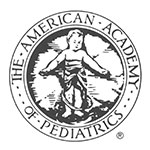 The AAP continues to affirm the dangers and harms of shaking infants, continues to embrace the “shaken baby syndrome” diagnosis as a valid subset of the AHT diagnosis, and encourages pediatric practitioners to educate community stakeholders when necessary.
The AAP continues to affirm the dangers and harms of shaking infants, continues to embrace the “shaken baby syndrome” diagnosis as a valid subset of the AHT diagnosis, and encourages pediatric practitioners to educate community stakeholders when necessary.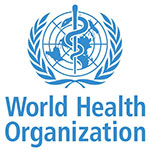 … the baby will be considered a possible victim of ‘shaken baby syndrome’, a form of child abuse that involves the violent shaking of an infant…According to Dr Kieran Moran, forensic paediatrician at Sydney Children’s Hospital, babies are victims of violent shaking mainly in their first year of life, as that is often when they cry inconsolably and when parents and carers become most frustrated.
… the baby will be considered a possible victim of ‘shaken baby syndrome’, a form of child abuse that involves the violent shaking of an infant…According to Dr Kieran Moran, forensic paediatrician at Sydney Children’s Hospital, babies are victims of violent shaking mainly in their first year of life, as that is often when they cry inconsolably and when parents and carers become most frustrated.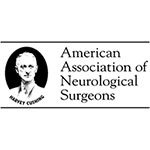 Shaken Baby Syndrome (also known as Shaken Impact Syndrome) is a serious form of abuse inflicted upon a child. It usually occurs when a parent or other caregiver shakes a baby out of anger or frustration, often because the baby will not stop crying.
Shaken Baby Syndrome (also known as Shaken Impact Syndrome) is a serious form of abuse inflicted upon a child. It usually occurs when a parent or other caregiver shakes a baby out of anger or frustration, often because the baby will not stop crying.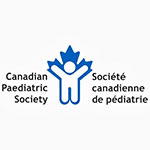 Shaken Baby Syndrome is a collection of findings, all of which may not be present in any individual child with the condition. Injuries that characterize Shaken Baby Syndrome are intracranial hemorrhage (bleeding in and around the brain); retinal hemorrhage (bleeding in the retina of the eye); and fractures of the ribs and at the ends of the long bones.
Shaken Baby Syndrome is a collection of findings, all of which may not be present in any individual child with the condition. Injuries that characterize Shaken Baby Syndrome are intracranial hemorrhage (bleeding in and around the brain); retinal hemorrhage (bleeding in the retina of the eye); and fractures of the ribs and at the ends of the long bones.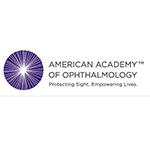 Shaken Baby Syndrome is a subset of Abusive Head Trauma characterized by repetitive acceleration-deceleration forces with or without blunt head impact resulting in a unique complex of ocular, intracranial, and sometimes other injuries, usually in infants…it has become widely recognized as one of the most serious manifestations of physical child abuse.
Shaken Baby Syndrome is a subset of Abusive Head Trauma characterized by repetitive acceleration-deceleration forces with or without blunt head impact resulting in a unique complex of ocular, intracranial, and sometimes other injuries, usually in infants…it has become widely recognized as one of the most serious manifestations of physical child abuse.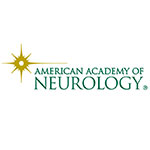 Shaken baby syndrome is a type of inflicted traumatic brain injury that happens when a baby is violently shaken. A baby has weak neck muscles and a large, heavy head. Shaking makes the fragile brain bounce back and forth inside the skull and causes bruising, swelling, and bleeding, which can lead to permanent, severe brain damage or death.
Shaken baby syndrome is a type of inflicted traumatic brain injury that happens when a baby is violently shaken. A baby has weak neck muscles and a large, heavy head. Shaking makes the fragile brain bounce back and forth inside the skull and causes bruising, swelling, and bleeding, which can lead to permanent, severe brain damage or death.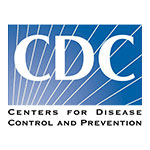 Abusive head trauma (AHT), which includes shaken baby syndrome, is a preventable and severe form of physical child abuse that results in an injury to the brain of an infant or child. AHT is most common in children under age five, with children under one year of age at most risk. It is caused by violent shaking or blunt impact.
Abusive head trauma (AHT), which includes shaken baby syndrome, is a preventable and severe form of physical child abuse that results in an injury to the brain of an infant or child. AHT is most common in children under age five, with children under one year of age at most risk. It is caused by violent shaking or blunt impact.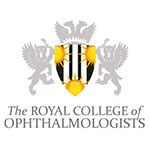
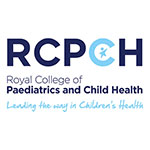 A child suspected of abusive head injury is referred by paediatricians to an ophthalmologist for evaluation. The incidence of abusive head injury in children is highest in infancy and less frequently seen in children over 3 years of age. Retinal haemorrhages have a high positive predictive rate for abusive head injury.
A child suspected of abusive head injury is referred by paediatricians to an ophthalmologist for evaluation. The incidence of abusive head injury in children is highest in infancy and less frequently seen in children over 3 years of age. Retinal haemorrhages have a high positive predictive rate for abusive head injury.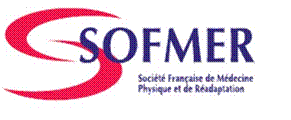 SBS is a type of inflicted, non-accidental or abusive head injury caused by shaking (either alone or combined with an impact). It mainly occurs in babies under the age of one. It is thought that 180 to 200 children per year are victims of this type of abuse in France, although this value is certainly an underestimate. Failure to diagnose SBS increases the likelihood of recurrence.
SBS is a type of inflicted, non-accidental or abusive head injury caused by shaking (either alone or combined with an impact). It mainly occurs in babies under the age of one. It is thought that 180 to 200 children per year are victims of this type of abuse in France, although this value is certainly an underestimate. Failure to diagnose SBS increases the likelihood of recurrence.


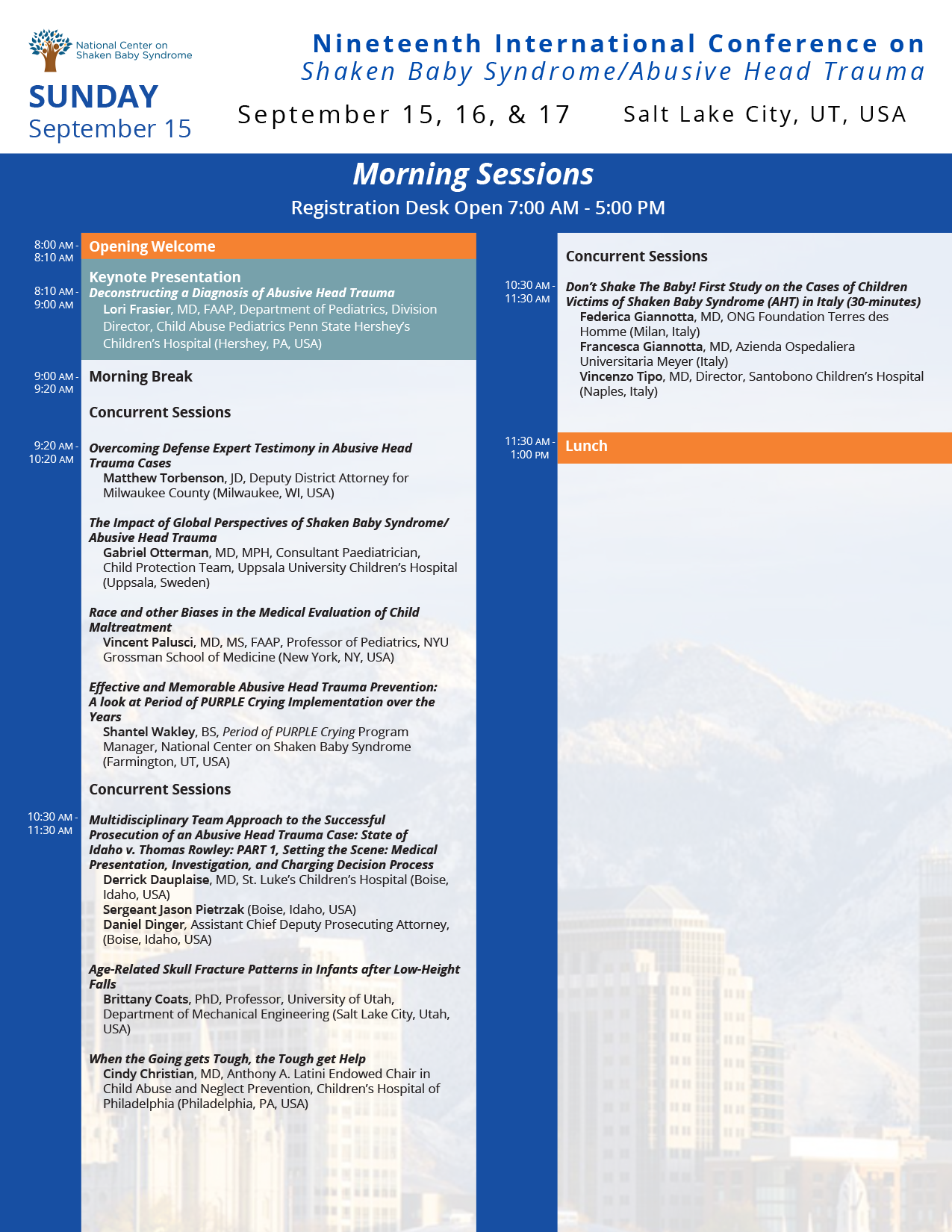
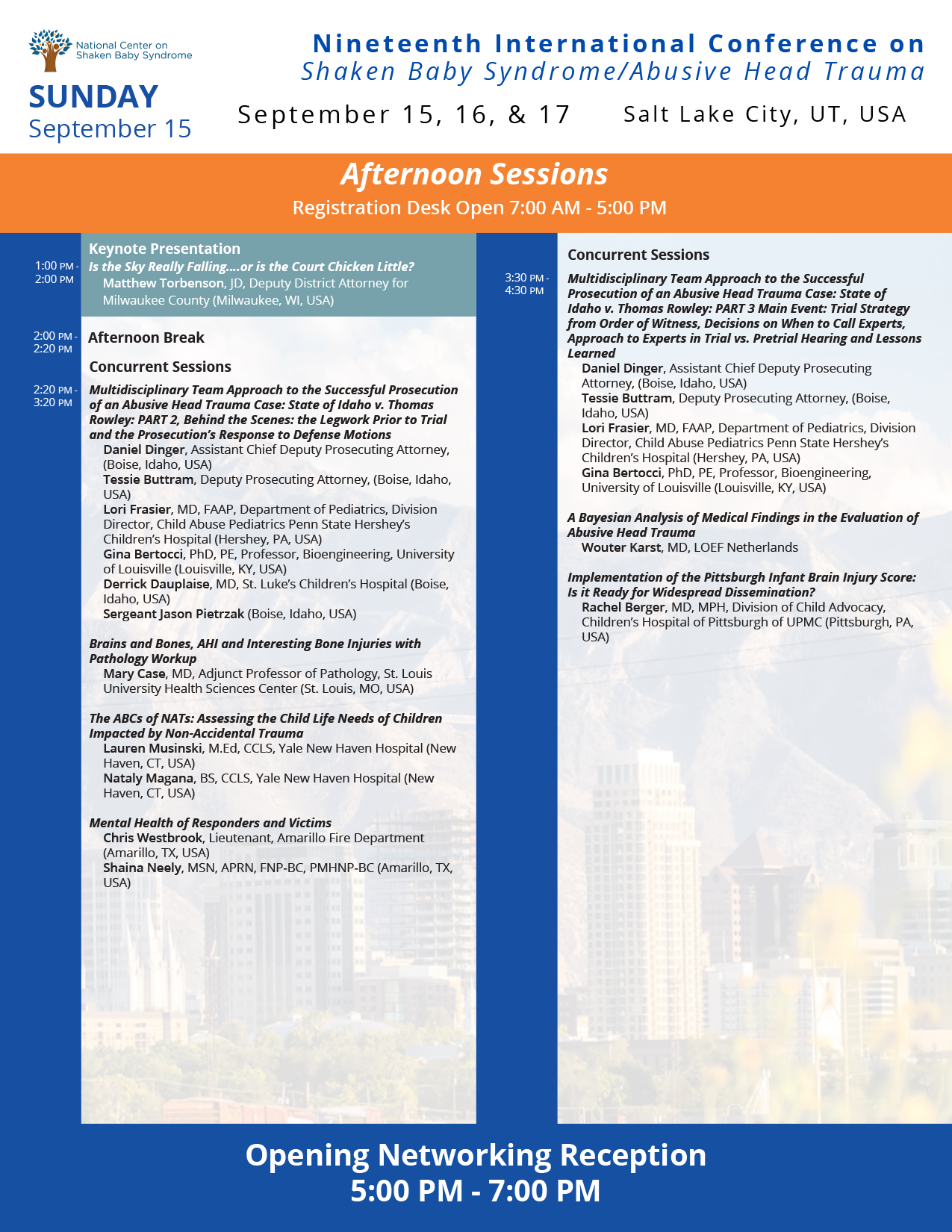
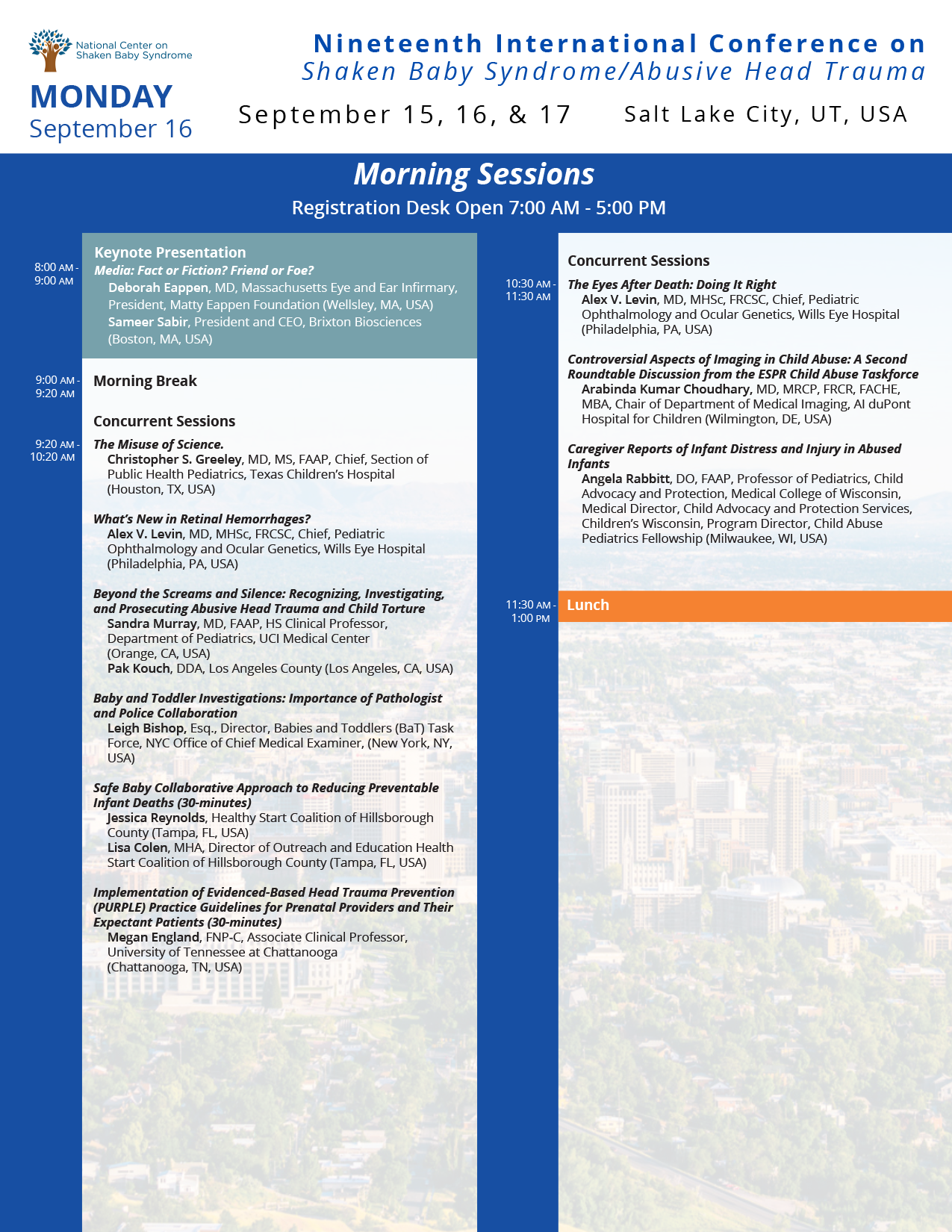
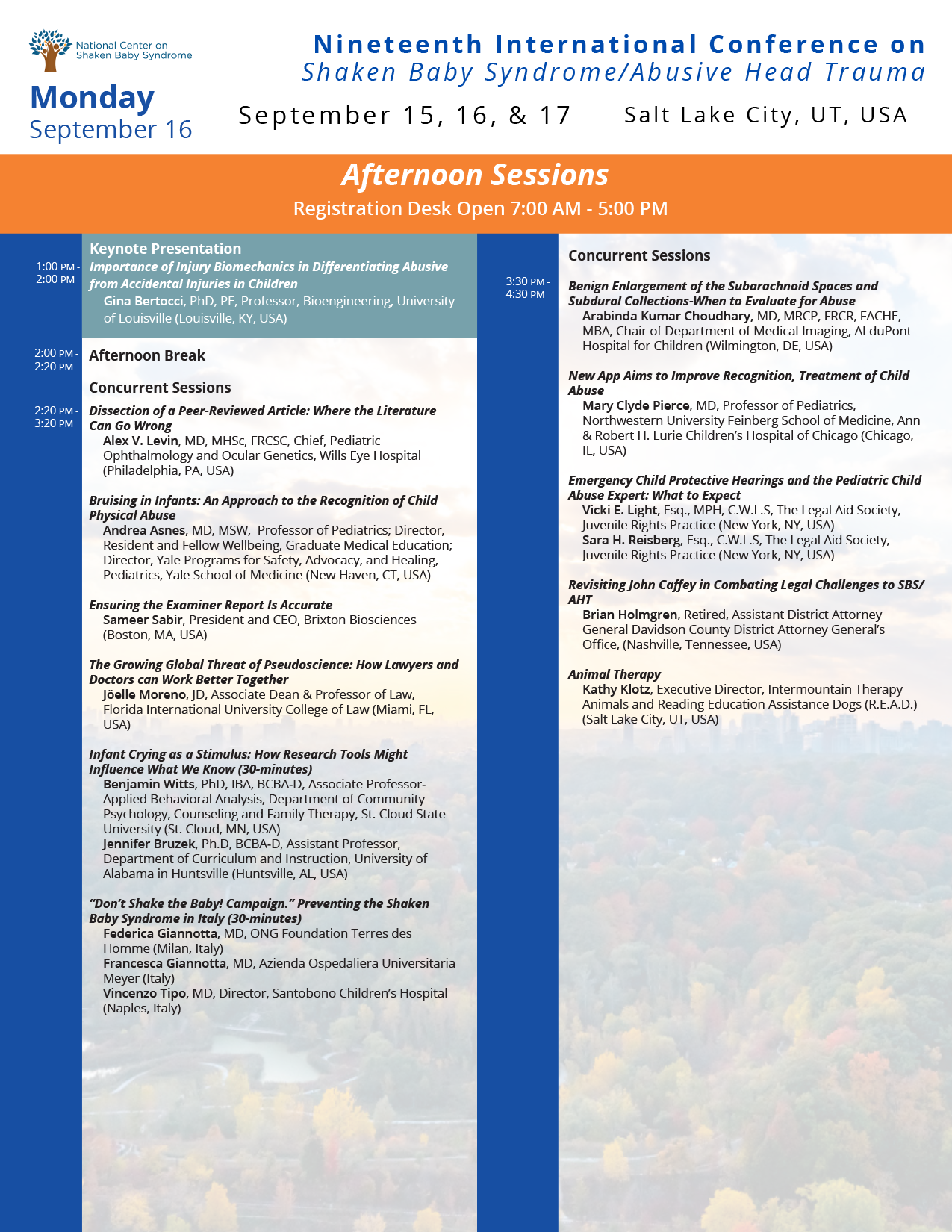
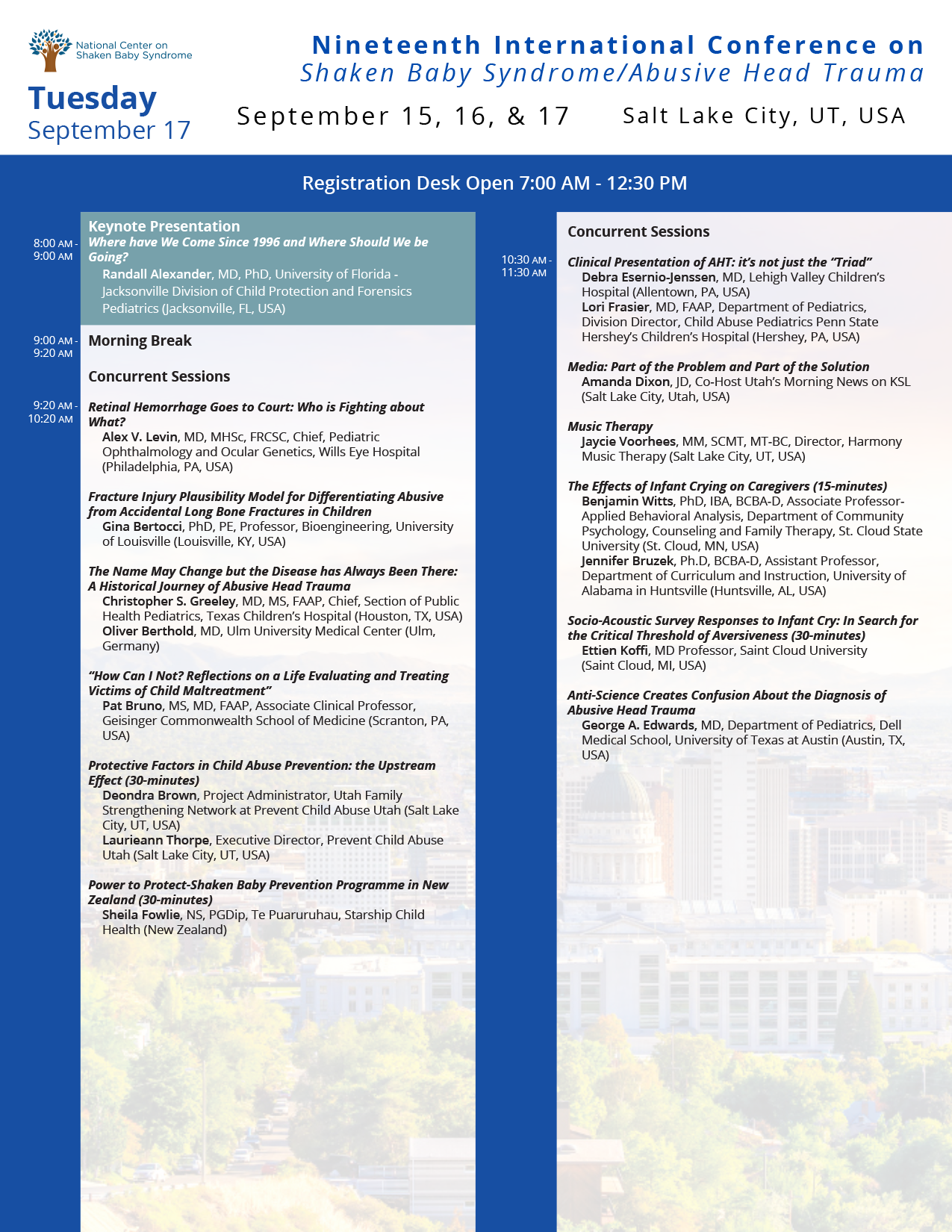
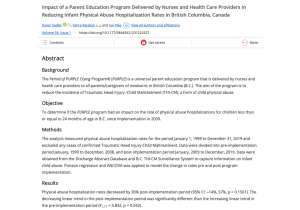





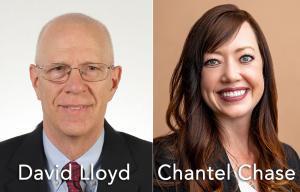
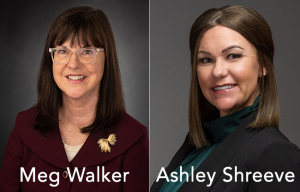
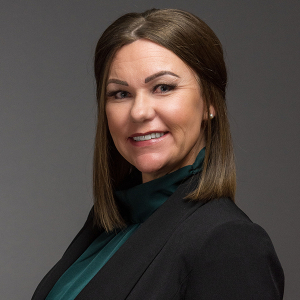
Donate